Agriculture & Environment
CAES Innovation Scholars Programme Boosts Critical Thinking, Innovativeness amongst Staff & Students
Published
3 years agoon
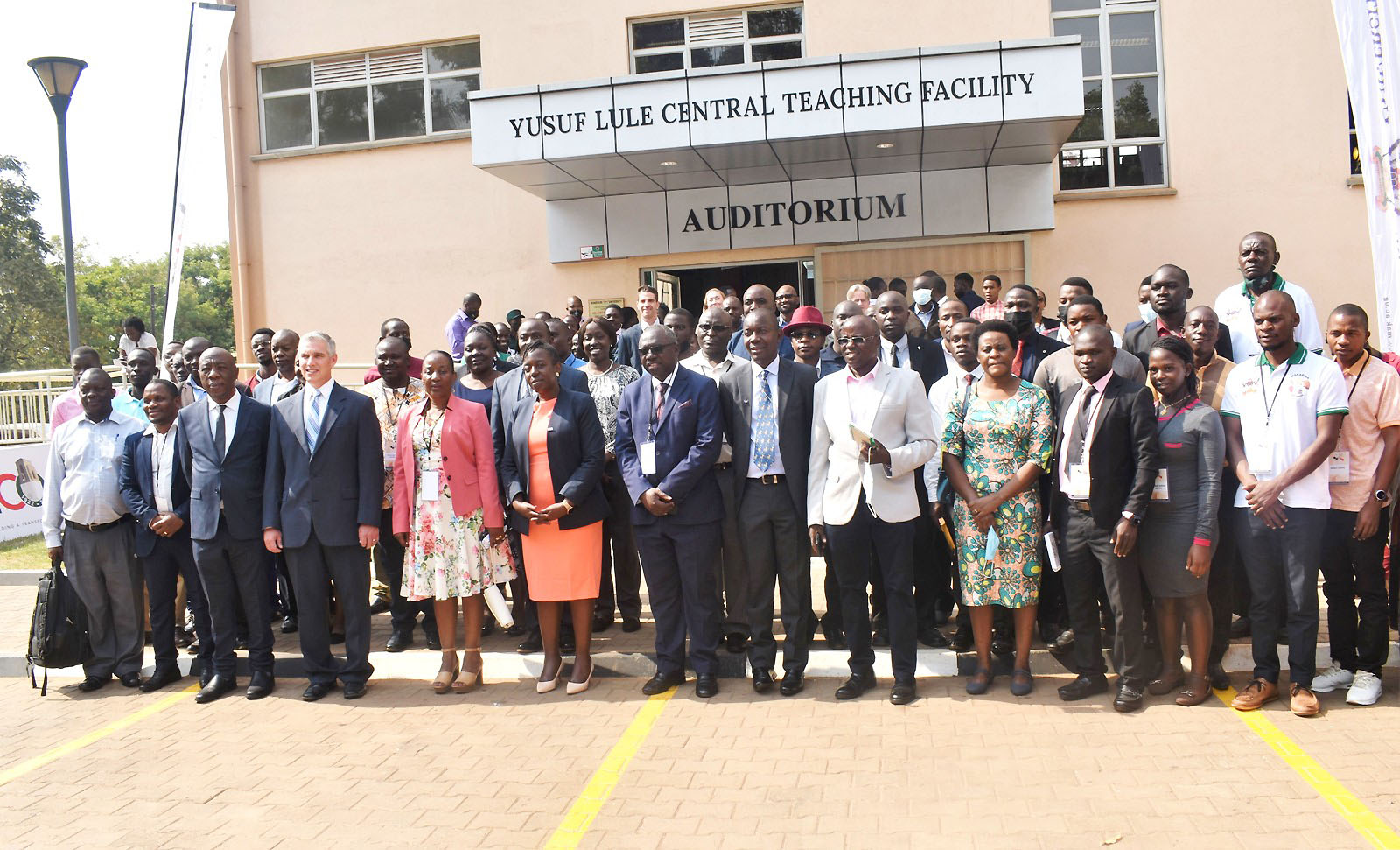
Inadequate curricula to stimulate innovativeness and entrepreneurship within learners and faculty and limited partnerships and collaborations are some of the major bottlenecks to innovativeness at the College of Agricultural and Environmental Sciences (CAES), Makerere University. The current programme design, sequencing and delivery inhibits critical thinking and innovation as it focuses more on theory than practice. Reviewing curricula to make it more learner-centered and entrepreneurial, reducing theory and creating more time for practical sessions can enhance the innovation culture at CAES.
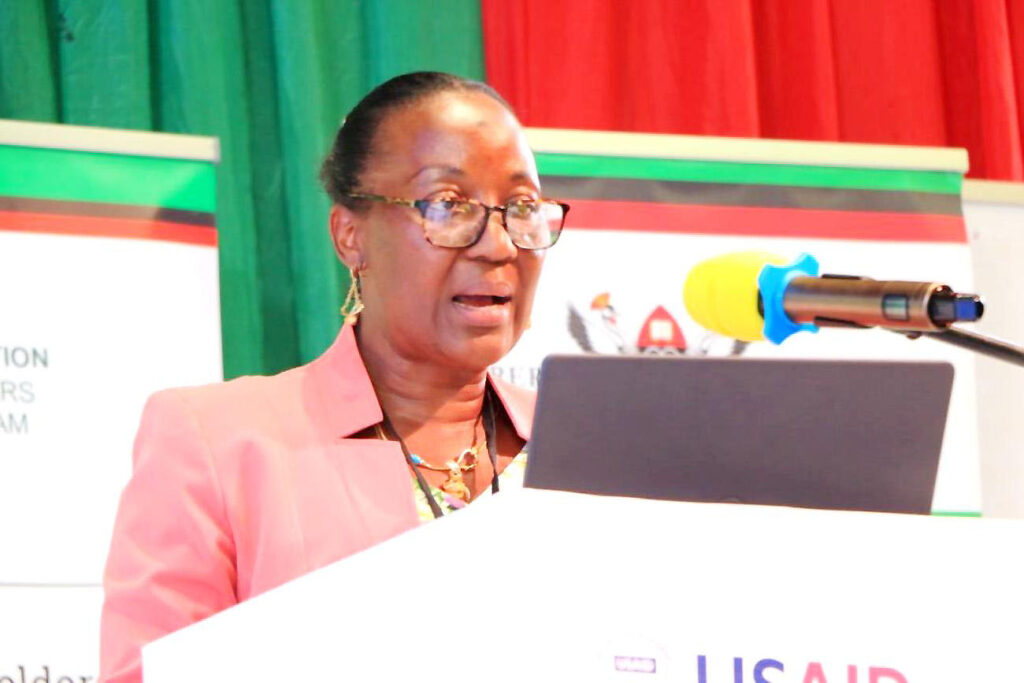
Through the Innovation Scholars Programme, CAES and Michigan State University’s Borlaug Higher Education for Agricultural Research and Development (BHEARD) Program with the support of the MSU’s Global Centre for Food Systems Innovation (GCFSI) are working together to advance the College toward its strategic vision – “to be a leading institution of academic excellence and innovations in Africa.” The CAES Innovation Scholars Programme (CAESISP) offers an eighteen-month opportunity during which CAES academic staff work as interdisciplinary teams to solve problems in the food systems in Africa, while at the same time offering support to the entire CAES academic fraternity in the areas of design thinking, teaching and learning, community outreach, and communicating science.The CAESISP serves as a catalyst to support food system innovations that improve food security, and develop the current and next generation of entrepreneurial scientists at Makerere University and in the region. The programme is modelled after a successful, field-tested faculty development programme implemented at the Lilongwe University of Agriculture and Natural Resources (LUANAR) and the Malawi University of Science and Technology (MUST) —yet tailored for innovation and contextual challenges at Makerere University. The core values of the CAESISP include: participatory, asset-based, learner-centered, contextualized, and evaluative.
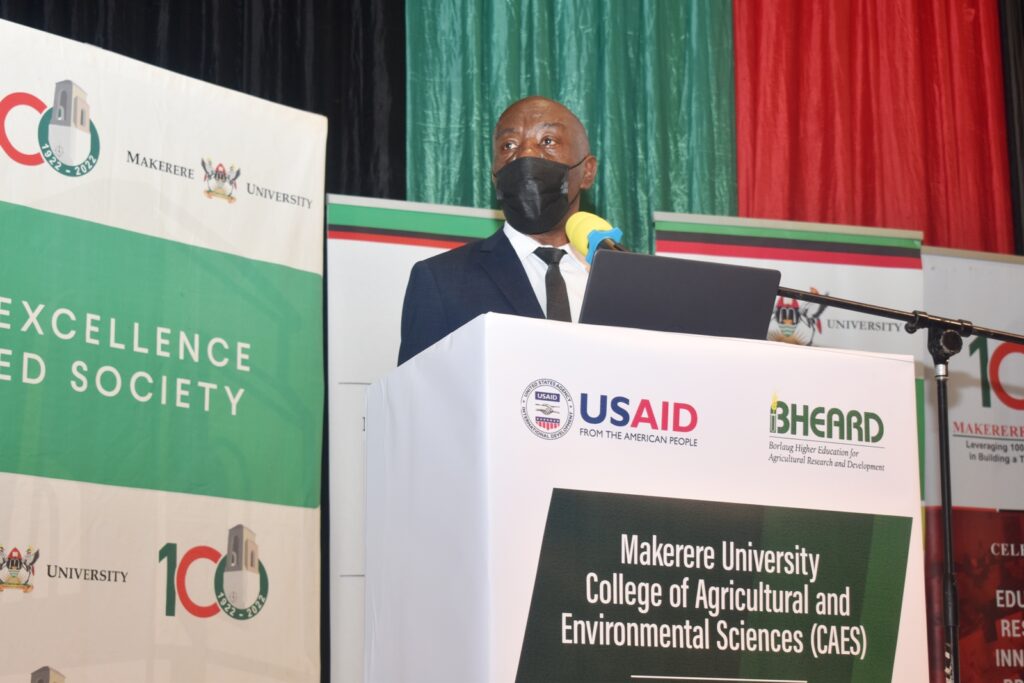
Under the programme, a number of academic staff at CAES have been coached to enhance their innovativeness to provide practical solutions to challenges affecting the agricultural sector. The researchers have also been equipped with various skills to deliver curricula that is practical-oriented and fosters critical thinking as well as entrepreneurship. At Makerere University, the Programme is headed by the Principal of CAES, Prof. Gorettie N. Nabanoga, and coordinated by Prof. Jackie Bonabana – Wabbi from the Department of Agribusiness and Natural Resource Economics (DANRE), CAES. The Michigan State University Coordinator is Dr John Bonnell, BHEARD Director.
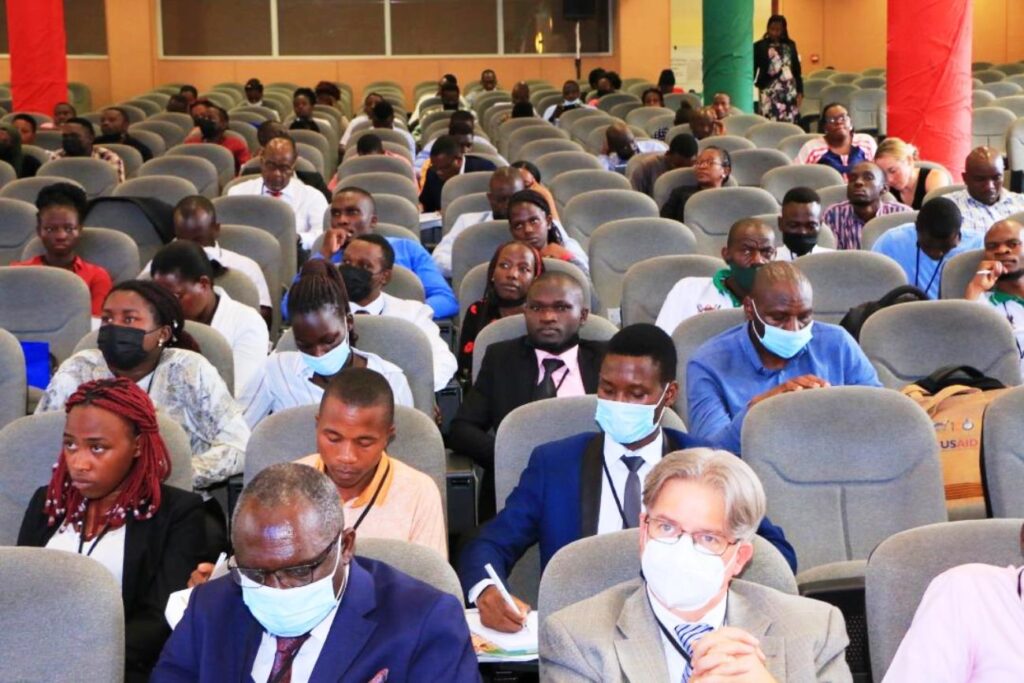
In the second week of August 2022, the College held a two-day workshop under the theme – “University Responsiveness to Innovation” to showcase some of the innovations that have resulted from the programme. The event held at Yusuf Lule Central Teaching Facility from 10th-11th August 2022 was graced by the Deputy USAID Mission Director in Uganda, Daniele Nyirandutiye and the Vice Chancellor of Makerere University represented by the Acting Deputy Vice Chancellor in charge of Finance and Administration, Prof. Henry Alinaitwe. Innovations showcased included the Kebera Organic App intended to detect contaminants in crops before they are put on market. The researchers also developed a tailor-made pasteurizer and fruit pulper for the Medium, Small & Micro Enterprises in the Food Processing Industry; and a Guide for Learner-Centered Processes at the Department of Environmental Management –CAES. They also developed two different audio-visual instruction materials for instructors and students to enhance e-learning at Makerere University; engaged various stakeholders to address challenges of poor seed quality in the horticulture industry; benchmarked approaches for improved delivery of Hands-on Practical Experiences for Business Management Courses at CAES, Makerere University; deployed a problem solving-centered teaching and learning approach using the Teach-Think-Pair-Share model for increased skilling among Agricultural students; and programmed a software platform with a matching algorithm to cross-reference student abilities with company profiles.
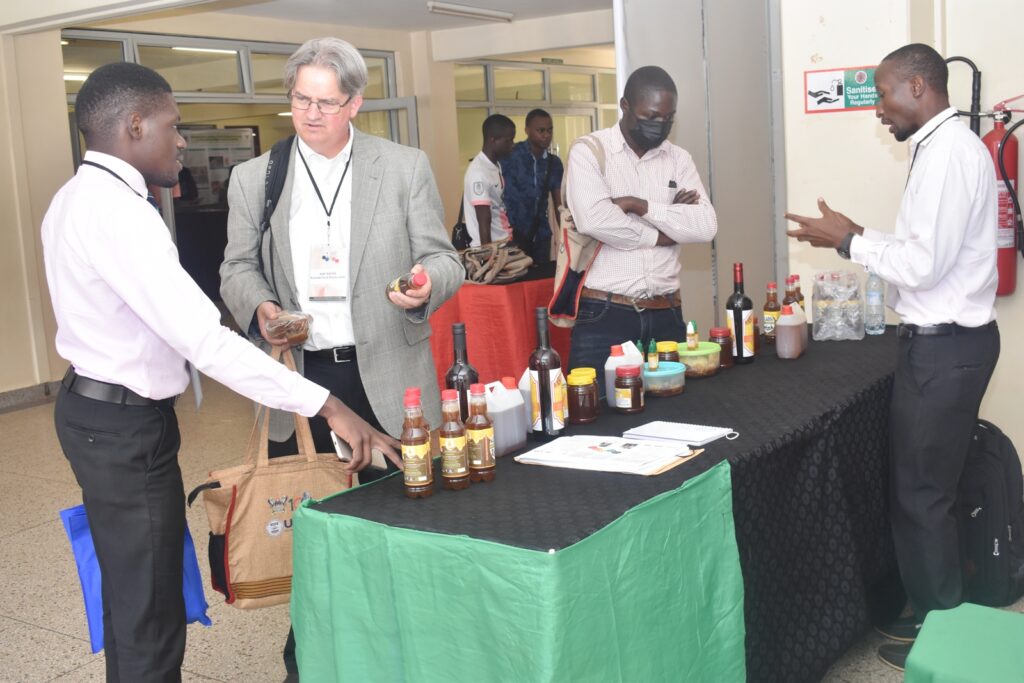
Research projects and innovations showcased
1. Breaking barriers to global organic market access through research and innovations at Makerere University
Organic Agriculture (OA) is a rapidly growing sector due to health concerns by consumers. Globally, Uganda is only second to India in terms of the number of organic producers (210,000 VS 1,366,000). Uganda was the first African country to develop a National Organic Agriculture policy-supporting environment in 2019. Despite an annual global organic market worth $100 billion USD, annual organic exports from Uganda only account for $50 million USD of the totaI. Limited knowledge and high transaction costs in OA are some of the major bottlenecks to market access. Agricultural products from Uganda are usually rejected in international markets due to standard challenges. 45% of organic products in Uganda are reportedly contaminated and this poses a danger to health. To minimize the challenge, researchers led by Prof. Fred Kabi from the Department of Agricultural Production, CAES developed an App that detects pesticides and aflatoxins in organic foods. The Kebera Organic App was designed by a group of researchers from CAES, the College of Computing and Information Sciences (CoCIS) and the College of Engineering, Design, Art and Technology (CEDAT) namely; by Mr. Ramadhan Nkuutu, Mr. Ambrose Kamya, Ms. Fatuma Nabatanzi, Dr. Daniel Basalirwa, Mr. Ronald Walumbusi and Mr. Brian Ogenrwoth. The App has been validated against globally recognised tools and proved suitable for field use and complies with the Food Safety Standards set by the Food and Agricultural Organization (FAO).
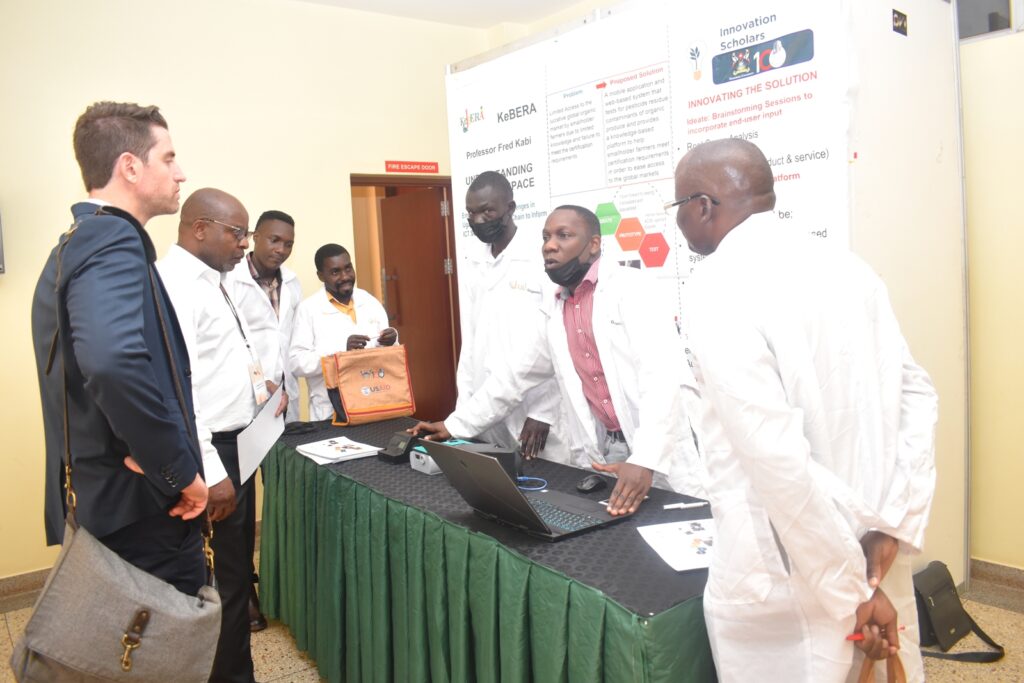
Click the link below to view a video demonstrating Dr. Fred Kabi’s Innovation Process.
https://drive.google.com/file/d/1ovZk01WfJF9vMMtzeT0RE2pF-Ty3XVUc/view
2. Developing Innovative Technology for the Medium, Small & Micro Enterprises (MSMEs) in the Food Processing Industry
A team of researchers led by Dr. Julia Kigozi and coached by Dr. Amy Jamison investigated the challenges faced by MSMEs Agro Processors in accessing pulping and pasteurizing equipment and discovered that many processors had limited access to the equipment due to the costs involved. To minimize the challenge, and increase access to the equipment, the team developed a tailor-made Pasteurizer and Fruit Pulper adapted according to end-user operational capacity, financial resources and available energy source, and composed manuals on the use and maintenance of the equipment. They also developed capacity among the agro-processors to design, simulate, fabricate and test the equipment. Other members on the project included; Mr. Moses Kalyango, Mr. Emmanuel Baidhe, and Mr. Isaac Oluk.
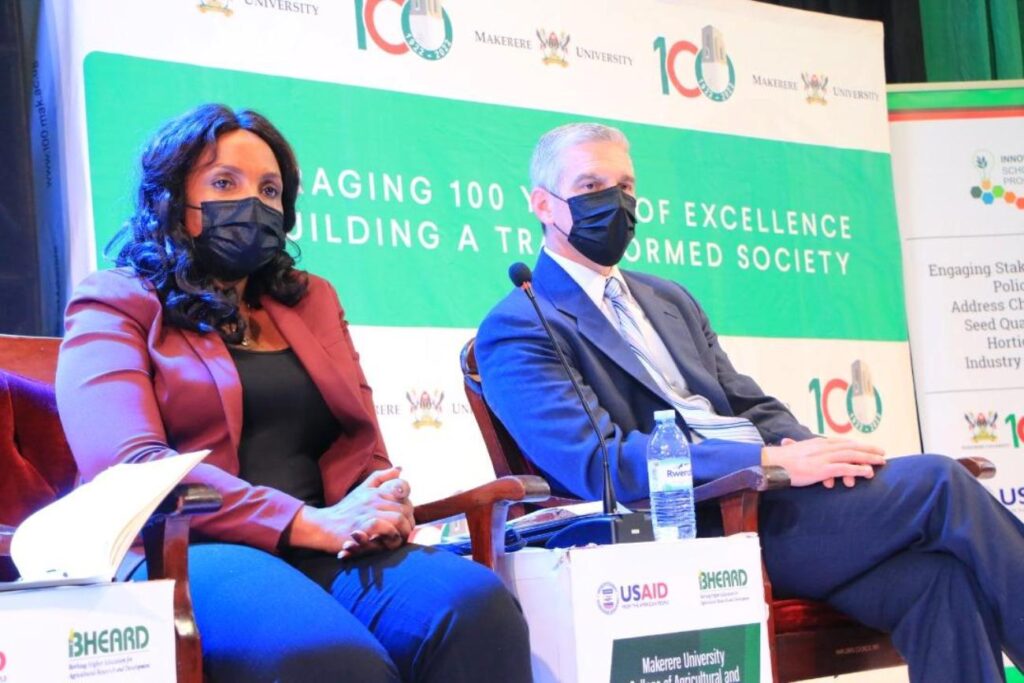
Click the link below to view a video demonstrating Dr. Julia Kigozi’s Innovation Process.
https://drive.google.com/file/d/1d3TSouASnCS_xCYdM4sf78QT7zRsNDXG/view
3. Learner-Centered Training in Environmental Science & Management
Strategic Goal No.2 of the Makerere University Strategic Plan 2020-2030 commits to Innovations in Teaching and Learning. The system has mainly been teacher-centred as opposed to learner-centred undermining practical training, critical thinking and innovativeness. Under the project, Prof. Justine Namaalwa and other team members namely: Prof. Anthony Egeru, Dr. Patrick Byakagaba, Dr. Kenneth Balikoowa, Dr. Ellen Kayendeke, Dr. Fred Yikii and Mr. Antonny Tugaineyo developed a Guide for Learner-Centered Processes at the Department of Environmental Management to support practical training and enhance innovativeness. The team worked in collaboration with Dr. Betty Ezati from the College of Education and External Studies, Makerere University; Dr. Jerome Lugumira from NEMA; Dr. Simon Nampindo from WCS; and Ms. Emily Namanya from Kampala Capital City Authority (KCCA).
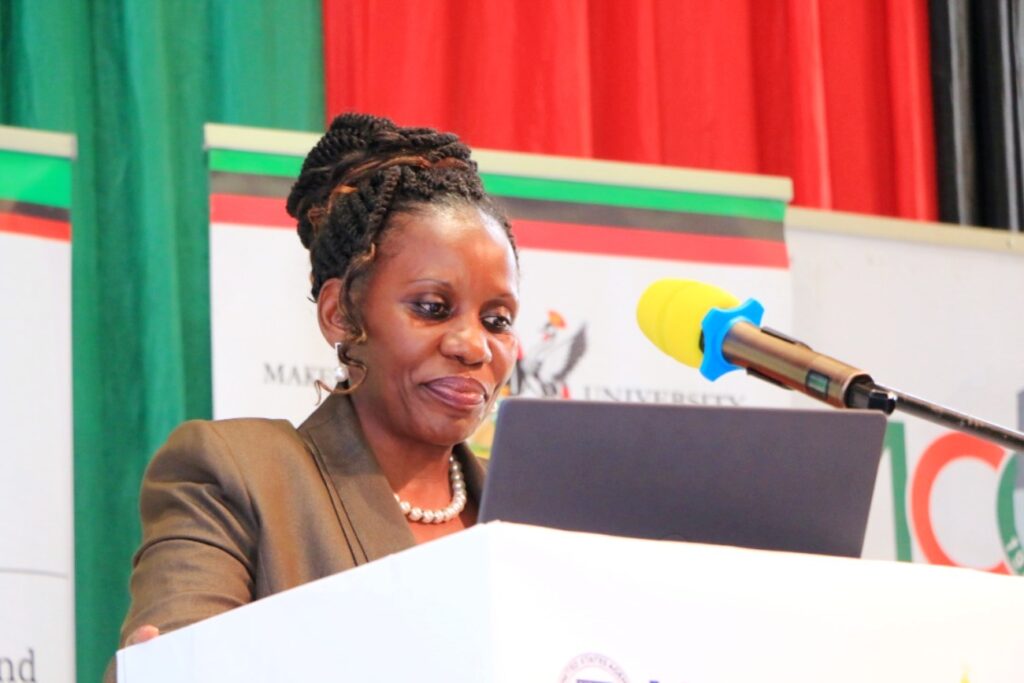
4. Capacity Enhancement for E-learning at Makerere University
Much as Makerere University E-Learning Environment (MUELE), is a common platform used for E-learning at Makerere University, both students and instructors lack the necessary skills to use the platform for learning and teaching because they have not been adequately trained. To enhance capacity for e-learning at the University, researchers led by Prof. Nelson Turyahabwe and coached by Dr. T.R. Silberg developed prototypes of audio-visual instructional materials to train instructors and students on how to access and navigate the MUELE platform for interactive teaching and learning. Other members on the team included Dr. G. Karubanga, Dr. H. Nabushawo, Ms. R. Mukebezi, Mr. I. Mugabiirwe.
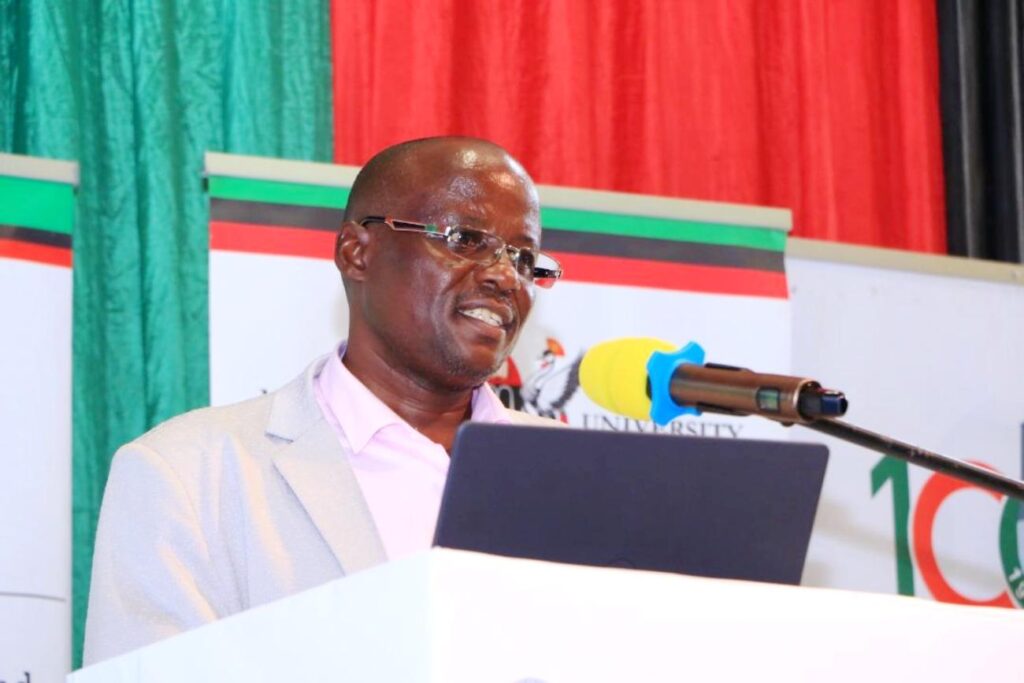
5. Engaging Stakeholders and Policy to Address Challenges in Seed Quality in the Horticulture Industry of Uganda: A Case of Tomato and Pepper
The Horticulture sector relies heavily on seed from the informal sector that is often of low quality and spreads disease. 40% of seed on market is counterfeit.The National Seed Policy (2018) that would contribute to addressing the challenge is not fully operational. There is also inadequate human capacity to conduct snowball efforts for improving seed quality in the horticulture industry. In a bid to increase access to quality seed in the Horticulture Industry in Uganda, the College of Agricultural and Environmental Sciences (CAES), Makerere University through the Innovation Scholars Program (ISP) has engaged different stakeholders in the country to address the challenges in seed quality. Through a project titled, “Engaging Stakeholders and Policy to Address Challenges in Seed Quality in the Horticulture Industry of Uganda: A Case of Tomato and Pepper”, researchers led by Dr. Jeninah Karungi-Tumutegyereize, an Associate Professor in the Department of Agricultural Production at CAES, Makerere University seek to enhance the quantity and quality of horticultural crops produce, and to strategically position CAES in agricultural development in the country. Other members on the project are; Prof. Samuel Kyamanywa, and Dr. Mildred Ochwo Ssemakula from the Department of Agricultural Production, Makerere University; Dr. Gabriel Ddamulira (Head, Horticulture Programme, National Crops Resources Research Institute (NaCRRI); Mr. Moses Erongu from the Department of Crop Inspection and Certification at the Ministry of Agriculture, Animal Industry and Fisheries; and Mr. Daniel Kituzi, a farmer and entrepreneur. Team coach was Prof. Andrew Safalaoh. Ideas put forward by stakeholders were compiled and synthesized.A policy brief has been developed as a key output.
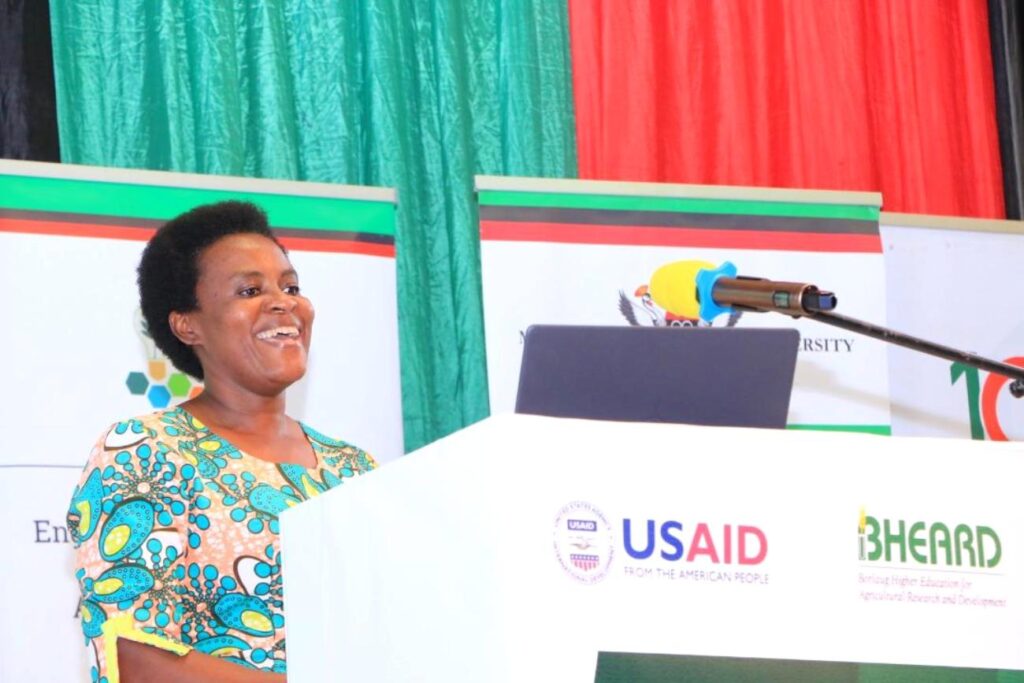
6. Benchmarking Approaches for Improved Delivery of Hands-on Practical Experiences for Business Management Courses at CAES, Makerere University
A team of researchers led by Dr. Alice Turinawe and coached by Dr. Sera Gondwe conducted investigations on topics that can be focused on to improve the delivery of more practical-oriented teaching. The team interviewed students, graduates and their employees to determine key topics that require more hands-on training. The team identified insufficient hands-on and practical exposure for entrepreneurship and marketing students, as well as limited experience and interaction with the world outside the study environment as some of the challenges undermining the performance of graduates. The team also established that potential employers and business partners expect soft skills from students.In a bid to produce better-equipped graduates, ready for life after school, the team strongly advocates for practical, hands-on skilling, as well as stronger connections between the university, private and public sectors.Other members of the team included Dr. Stephen Lwasa, Dr. Paul Aseete, Dr. Peter Walekhwa & Ms. Ahikiriza Elizabet.
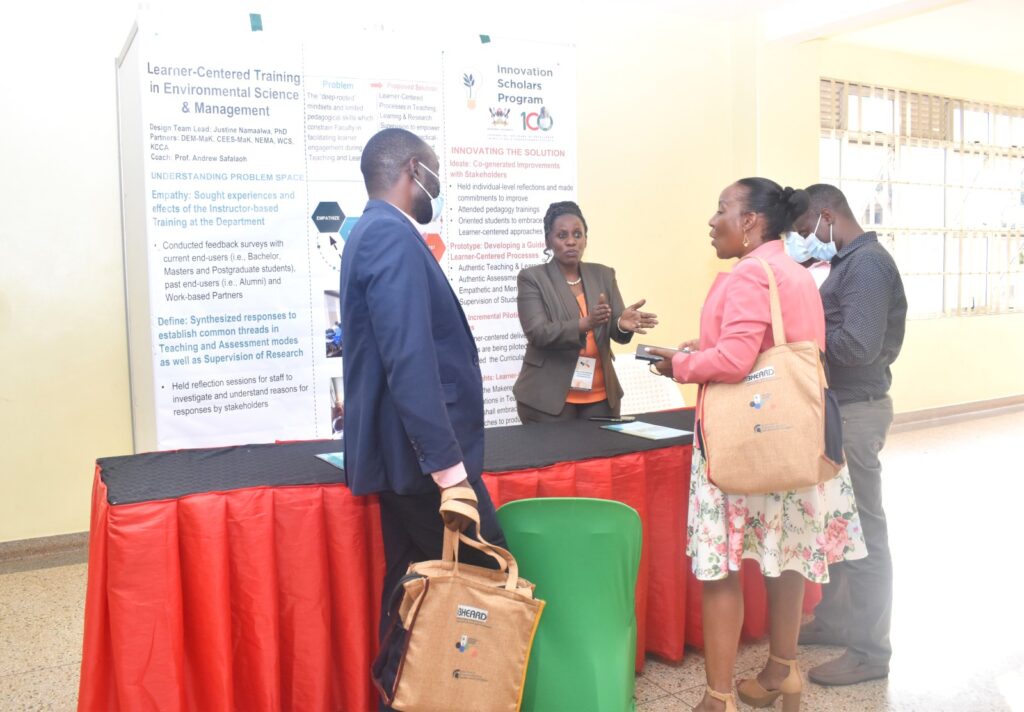
7. Deployment of a problem solving-centered teaching and learning approach using the Teach-Think-Pair-Share model for increased skilling among Agricultural students
Student lack full exposure to field problems for innovative learning and entrepreneurship. There is lack of a robust teaching and learning model that responds to the changing global needs in terms of innovativeness for entrepreneurship among students. Change in the style of delivery of lectures with inclusion of the Teach, Think, Pair, Share Model in new course descriptions is a possible solution for enhancing skills amongst students. The students are keen to learn with the model but they emphasize field practicals with progressive agribusiness entrepreneurship. Researchers including Dr Patrick Musinguzi (Team Leader), Dr Twaha A. Basamba, and Dr Emmanuel Opolot call for the novel Teach-Think-Pair-Share model of teaching and learning to be incorporated in the curriculum review process for agricultural based programmes. Funding to test the model with field-based practical support for students is critical to understand the novel teaching and learning approach.
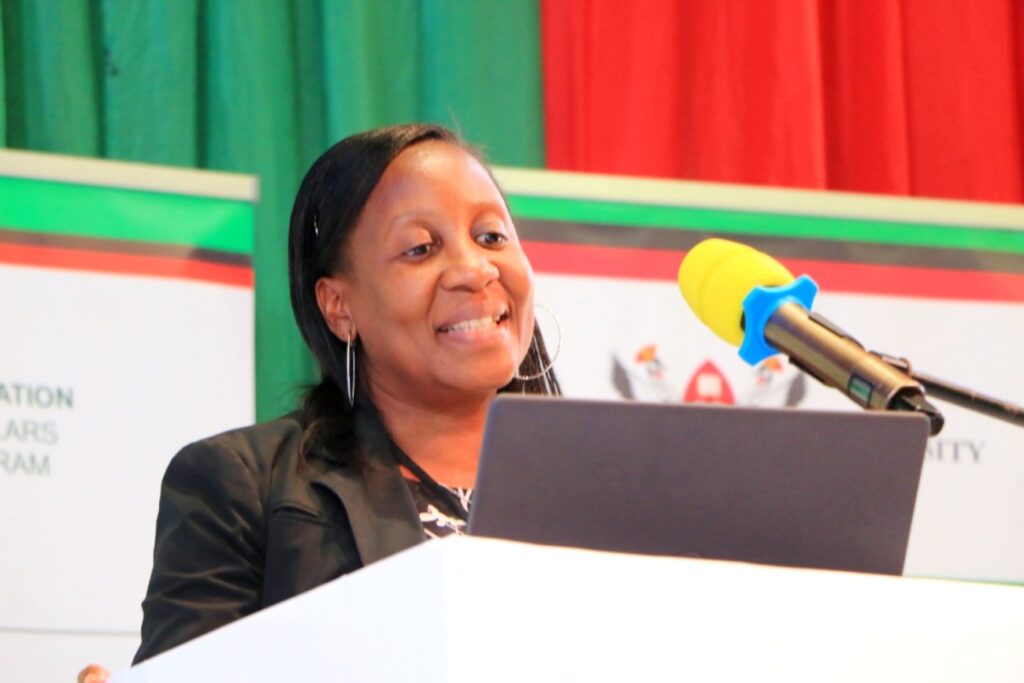
8. Strengthening The Department of Agricultural and Biosystems Engineering’s Industrial Training to Improve Students’ Innovativeness and Entrepreneurial Ability
Industries where students intern complain that they gain no tangible benefits from industrial training programmes. The students also complain that they are not motivated to be creative since they are forced to train in industries that do not match their strengths and/or interests.A solution that curates data on students’ strengths, abilities, interests and preferences and then proposing matching organizations ideal for their internship training comes in handy.Proper matching of students to industries increases their innovativeness.To match students’ desires with industry needs, researchers led by Dr Allan John Komakech and coached by Dr N. Peter Reeves developed a software platform programmed with a matching algorithm to cross-reference student abilities with company profiles. The platform will be tested with students and industries relevant to DABE and scaled to CAES.
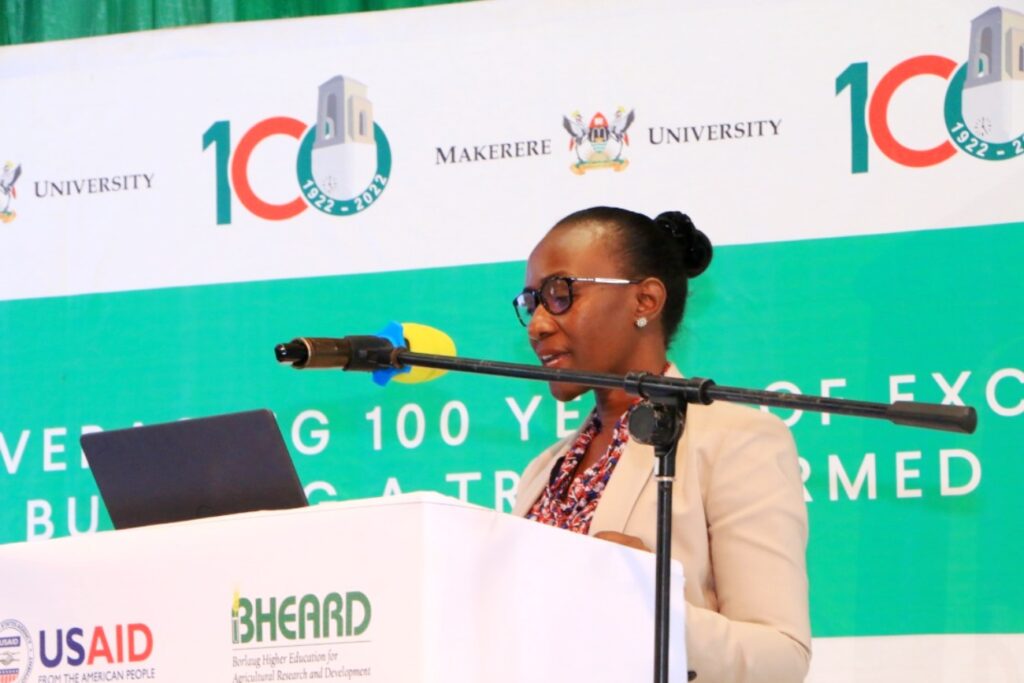
Remarks by the representative USAID
In her remarks, the Deputy Director USAID Mission in Uganda, Daniele Nyirandutiye commended the incredible innovations resulting from the CAESISP noting that they will play an essential role in addressing current and future food security challenges, and serve as a catalyst to spur more critical research and innovations at the University. “The CAESISP has greatly supported staff and students define better career paths and has strengthened the innovation culture at CAES,” she noted.Appreciating Michigan State University’s Borlaug Higher Education for Agricultural Research and Development (BHEARD) for supporting quality research, collaboration, outreach and capacity building in Uganda, she said the skills acquired by the scholars would greatly enhance the University’s capacity to influence policy. “Uganda’s ability to deal with food insecurity rests in our ability to drive innovations and adopt new technologies. Academic institutions play an essential role in the global agriculture market space. Collectively we can use our mind power to solve challenges of global food insecurity,” she said, calling upon all stakeholders to expand, sustain and nurture the programme beyond its life.
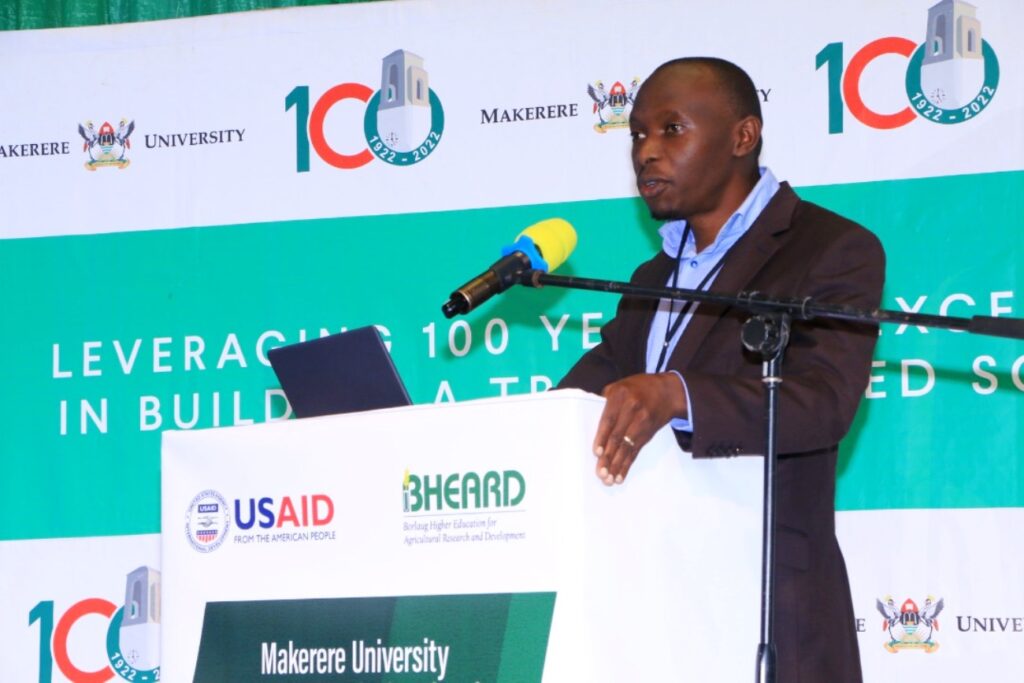
Remarks by the DVC/FA
On behalf of the Vice Chancellor, Makerere University, the Acting Deputy Vice Chancellor, Finance and Administration, Prof. Henry Alinaitwe appreciated USAID for tirelessly supporting Makerere University’s efforts towards becoming a research-led University. Over the years, USAID has partnered with and supported various programmes at Makerere. Specific to CAES, USAID through BHEARD supported 5 PhDs and 2 MA students between 2012-2016 to study in Universities in the US. The students participated in top level programmes focusing on Agriculture and nutrition. Between 2015-2019, USAID supported the development of a regional PhD in Agriculture and Applied Economics at the Department of Agribusiness and Natural Resource Economics, CAES. They also supported training of three PhD students in Agricultural Research and Policy Analysis. Emphasizing the central role of CAES in transforming the agricultural sector in the country and highlighting challenges posed by the growing population, Prof. Alinaitwe implored academics at the College to continue venturing into innovations that can address problems of food insecurity.
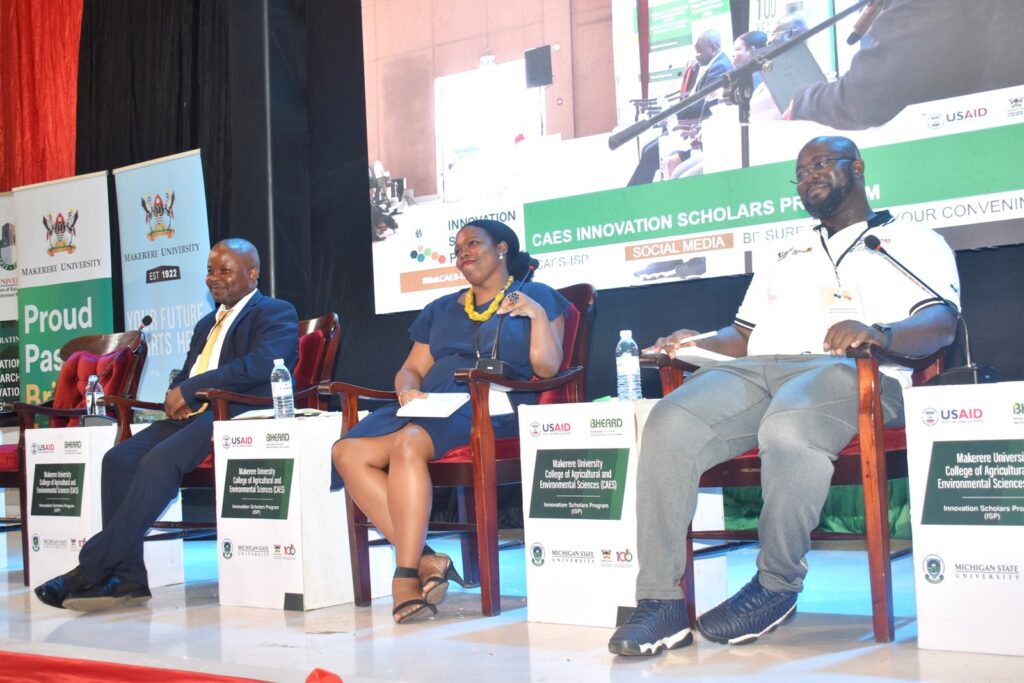
Remarks by the Principal, CAES
Addressing participants, the Principal of CAES, Prof. Gorettie Nabanoga said the College was moving towards more experiential learning & practical orientation of students. “In a bid to produce marketable graduates, we need to re-orient the mind-sets of our students to become critical thinkers & innovative,” she noted, appreciating the support rendered by USAID through the Innovation Scholars Programme that has enabled the College to make great strides in the Innovations journey. The Principal informed participants that as part of its strategic goals, the College was targeting to establish an innovations hub specific for agricultural and environmental innovations. She expressed gratitude to the Government of Uganda for the unwavering support towards research and innovations at the University, appealing for funding specifically ring-fenced for agricultural and environmental innovations at CAES. “We committee to remain innovation intentional as we leverage the 100 years of excellence at Makerere University”.
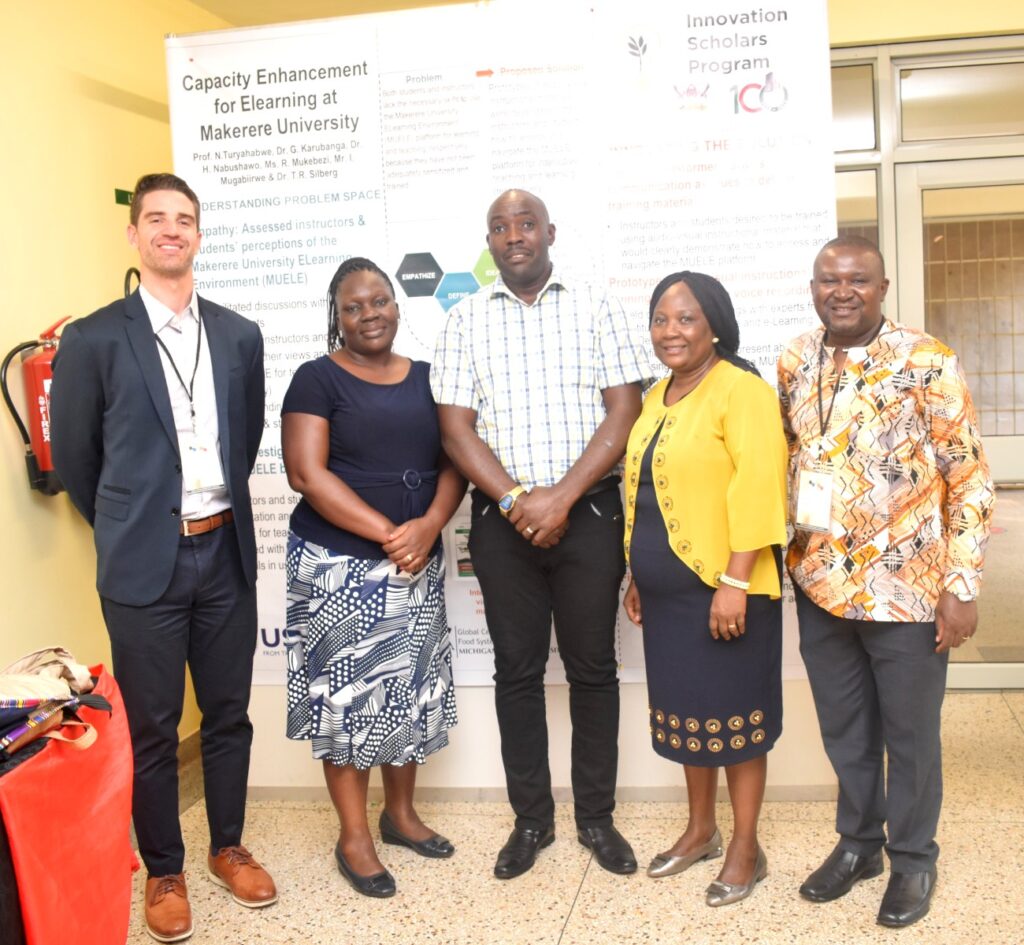
Panel discussion on nurturing innovative mind-sets
Sharing ideas on how to nurture innovative mind-sets, a panel of experts including Mr Apollo Segawa, Executive Director, CURAD Uganda; Mr. Benjamin Gyan-Kesse, Executive Director, Kosmos Innovation Centre – Ghana; Ms Freda Yawson, Entrepreneur and Senior Manager for Infrastructure and Innovation at the Africa Centre for Innovation in Ghana emphasized the need to be intentional about nurturing business mind-sets amongst students. “Every course should have an entrepreneurship unit. There is need to give more time to special projects,” they advised.They also emphasized the need to be intentional about developing a strong media policy on innovations, and to create models of intellectual property in context with the African Continent, as a way of promoting local content.
The event was moderated by Dr Patrick Byakagaba, a Lecturer at CAES.
You may like
-
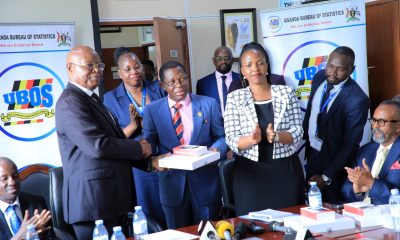

Makerere University Receives 700 Tablets from UBOS to Boost Statistical Activities
-
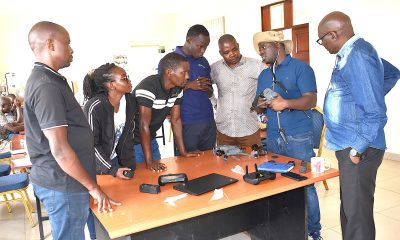

NbS4Tea Project Team Makes Great Progress, Deploys Drones for Data Collection
-
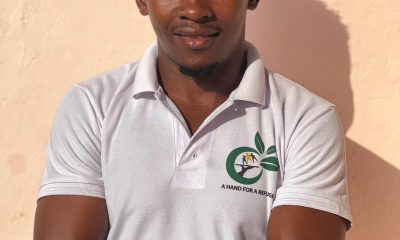

Meet Safali Libia, a Mastercard Foundation Scholar-alumnus who rebuilt his life as a refugee in Uganda
-
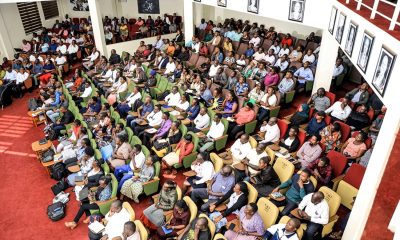

Call for Abstracts: 2nd East African Symposium and Expo on Trauma, Injuries, and Emergency Care – 2025
-
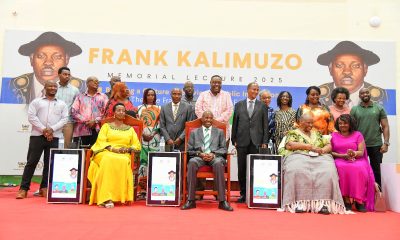

Mirror Frank Kalimuzo’s life of service-MUBS Principal
-
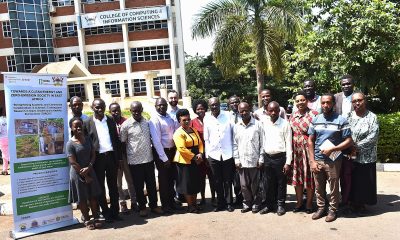

New Mak-CAES Project to Spur Green Growth in East Africa
Agriculture & Environment
NbS4Tea Project Team Makes Great Progress, Deploys Drones for Data Collection
Published
1 week agoon
June 24, 2025
****Funded by the Danish Fellowship Centre under Denmark’s Ministry of Foreign Affairs, NbS4Tea is a five-year initiative aimed at enhancing climate resilience and tea productivity in Uganda.
Launch of drones for data collection
The Nature-based Solutions for Tea (NbS4Tea) project has registered a significant milestone with the successful deployment of drones to improve environmental and agricultural data collection.
On 19th June 2025, the project team officially launched the drones at the Rwebitaba Tea Research Centre in Kyenjojo District, the project’s main research hub. The launch event included hands-on training sessions by Mr. Timothy Mutungi, a certified Remote Sensing Drone Pilot. Mr. Mutungi provided detailed instruction on drone operation, safety procedures, and data acquisition techniques specifically tailored to the project’s goals. The training was attended the core NbS4Tea researchers as well as students supported by the project.

By utilizing drone technology, the team will be able to capture high-resolution imagery and gather critical environmental data across vast tea-growing areas. This will enable more precise assessments of biodiversity, soil health, water use, and overall ecosystem services. The valuable insights generated will guide the development of sustainable, nature-based agricultural practices with the potential for widespread adoption throughout the tea industry.
About the NbS4Tea Project
NbS4Tea is a five-year initiative aimed at enhancing climate resilience and tea productivity in Uganda. Funded by the Danish Fellowship Centre under Denmark’s Ministry of Foreign Affairs and led by Dr Emmanuel Arthur from Aarhus University, the project is being implemented through a consortium of Ugandan and Danish institutions namely: Makerere University, the National Agricultural Research Organization (NARO), Uganda, Uganda Tea Association, Aarhus University, Denmark, and Kick-start International.

The primary objective of the project is to sustainably close the tea yield gap in Uganda by developing research-driven, nature-based solutions that enhance the climate resilience of tea production systems. This involves identifying climate-resilient tea varieties, integrating tea prunings and banana by-products, utilizing nitrogen-fixing agroforestry trees, and improving irrigation management. The approach emphasizes socio-economic feasibility, capacity building in research, and a market-oriented, multi-stakeholder collaboration to ensure both environmental and economic sustainability.
At Makerere University, the project is coordinated by Dr Alex Nimusiima from the Department of Geography, Geo-Informatics and Climatic Sciences at CAES. Other Project members are; Dr Grace Nakabonge from the Department of Forestry, Biodiversity and Tourism; Dr Prossy Nakawuka from the Department of Agricultural and Bio-systems Engineering; Dr Twaha Ali Basamba from the Department of Agricultural Production; and Dr Alice Turinawe from the Department of Agribusiness and Natural Resource Economics.

Specific objectives
- Identify and quantify climate change impacts on tea yield and quality based on historical and newly obtained data and novel data mining methods.
- Screen, select and recommend tea varieties adapted to abiotic (drought and heat) and biotic stresses (diseases and pests).
- Develop new knowledge on the potential of local waste biomass (tea prunings, banana pseudostems and peels) as soil amendments- mulch, compost, biochar, to recycle nutrients, improve soil fertility, increase carbon sequestration and alleviate drought.
- Reveal NbS through agroforestry combined with organic mulch, irrigation and resilient tea varieties that increase biodiversity and tea yield.
- Innovate new methods to enhance tea production under climate change through rainwater harvest and climate-smart irrigation infrastructure.
- Empower vulnerable groups (women, youth, and people with disabilities) in tea production and processing to ensure multi-actor involvement and socio-economic benefit outreach of the proposed NbS in tea cultivation and production.
- Identify export market strategies for NbS tea products, aligned with consumer preferences.

Progress thus far
Launched in January 2024, the project, organized in five work packages, has registered significant progress. Each of the work packages listed below supports one PhD student and one Masters’ student. The PhD students are: i) Mr. Adiga Hassan from the Department of Geography, Geo-Informatics and Climatic Sciences at CAES conducting research under work package 1; ii) Ms. Sarah Namayengo from the Department of Forestry, Biodiversity and Tourism conducting research under work package 2; Ms. Vivian Namutebi from the Department of Soil Science and Land Use Management undertaking research on work package 3; Mr. Keneth Chelimo from the Department of Agricultural and Biosystems Engineering conducting his research under work package 4; and Ms. Moreen Asasira from the Department of Agribusiness and Natural Resource Economics focusing on work package 5. The Masters students are: i) Ms. Evelyn Katasi from the Department of Environmental Management at CAES (work package 1), Mr. Vereriano Turyahebwa from Department of Forestry, Biodiversity and Tourism (work package 2); Mr. Ben Okurut from the Department of Soil Science and Land Use Management (work package 3); Mr. Augustine Okot from the Department of Agricultural and Biosystems Engineering (work package 4); and Mr. Augustine Kigozi from the Department of Agribusiness and Natural Resource Economics (work package 5)

Work packages and achievements registered
Work Package 1: Climate change impacts on tea yield and quality – Headed by Dr. Alex Nimusiima
This work package centres on the analysis of historical and projected climate conditions in the study area. It examines how current climate patterns influence tea production, as well as the potential effects of future climate change on tea yield and quality.
Progress
i) A household survey assessing the socio-economic status of tea farmers and the effects of climate variability on their livelihoods has been completed.
ii) The collected data has been cleaned, and the Masters student supported under this work package is currently writing her thesis based on the survey findings.
iii) A historical climate analysis of the study area has been conducted by the PhD student, who is now preparing a manuscript.

Work Package 2: Screening & selecting tea genotypes for resilience to abiotic and biotic stresses – Headed by Assoc. Prof. Grace Nakabonge
This work package focuses on evaluating existing tea genotypes for their resistance to pests and diseases, using chlorophyll fluorescence imaging as a diagnostic tool.
Progress
i) A screen house has been constructed to serve as the experimental site.
ii) Germplasm from two tea varieties is currently being cultivated in the screen house in preparation for the upcoming experiments.
iii) A drone has been acquired to assist in data collection for this work package.

Work Package 3: Evaluation of NbS for climate resilience, higher yield and biodiversity- Headed by Assoc. Prof. Twaha Ali Basamba
This focuses on the characterization of mulch and biochar derived from tea prunings to improve soil health. It also aims to quantify the added value of Nature-based Solutions (NbS) in enhancing tea productivity, promoting climate resilience, and supporting biodiversity.
Progress
- So far, Biochar has been produced from tea prunings and characterized.
- The Masters student supported under this work package is writing his thesis on the results of biochar characterization.

Work Package 4: Innovating smart and scalable irrigation technology for improved tea production- Headed by Dr. Prossie Nakawuka
This work package aims to develop and evaluate smart, scalable irrigation solutions to boost tea production. It focuses on assessing how irrigation impacts tea yield and quality, measuring water use efficiency, and analyzing the economic returns of irrigation practices. Additionally, it explores deficit irrigation and climate-resilient strategies to ensure sustainable tea farming in changing environmental conditions.
Progress
- The irrigation infrastructure is now in place and fully operational at Rwebitaba Tea Research Centre in Kyenjojo District.
- The experimental plots for irrigation experiments are already in place with water pipes.

Work package 5: Socio-economic assessment of tea-agroforestry and selected tea varieties – Headed by Dr. Alice Turinawe
This work package emphasizes co-creation within multi-stakeholder innovation networks to evaluate the economic feasibility and market access of tea agroforestry systems. It also focuses on promoting gender balance and understanding consumer valuation of Nature-based Solutions (NbS) tea from Uganda.
Progress
To date, two co-creation workshops have been successfully conducted and the Masters student under this work package is currently analyzing the workshop results as part of their research.

Expected outputs and outcomes
- Increased tea production, productivity, and biodiversity through the adoption of NbS.
- Increased research and technical capacity of Makerere and R-ZARDI.
- Holistic stakeholder insight on economic feasibility, consumer acceptance and market access strategies, especially for vulnerable groups in the tea value chain.
- Increased job prospects for youth and women in tea production sub-sectors.
- Improved social status and increased incomes of tea farmers, traders, and exporters.
- Improved economic and environmental quality by recycling biomass waste into value-added products dedicated to soil enhancement.
- 4+ high-yielding tea genotypes adapted to drought and heat, diseases and pests.
- 15+ scientific articles, conference presentations.
- Five PhDs and Five MSc degrees.
- Market access assessment and empowerment.

Details on the project: https://news.mak.ac.ug/2024/01/new-caes-project-to-improve-tea-production-in-uganda/
More photos from the event



Agriculture & Environment
New Mak-CAES Project to Spur Green Growth in East Africa
Published
3 weeks agoon
June 13, 2025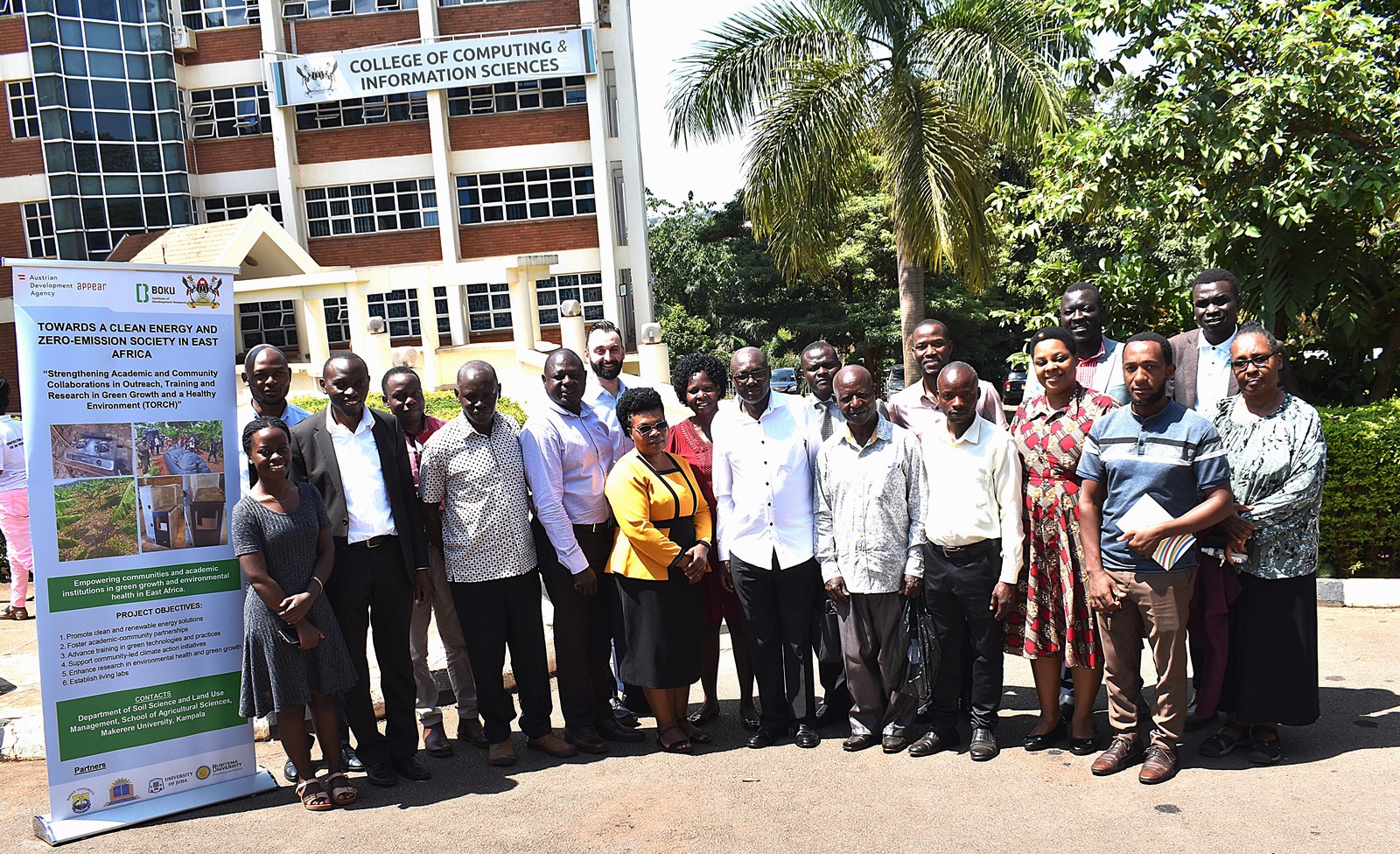
Makerere University, through its Department of Soil Science and Land Use Management at the College of Agricultural and Environmental Sciences (CAES), has launched a new project aimed at fostering green growth and promoting sustainable development across East Africa. This initiative aligns with global efforts to combat climate change and create eco-friendly, low-carbon communities through collaborative research, education, and technology.
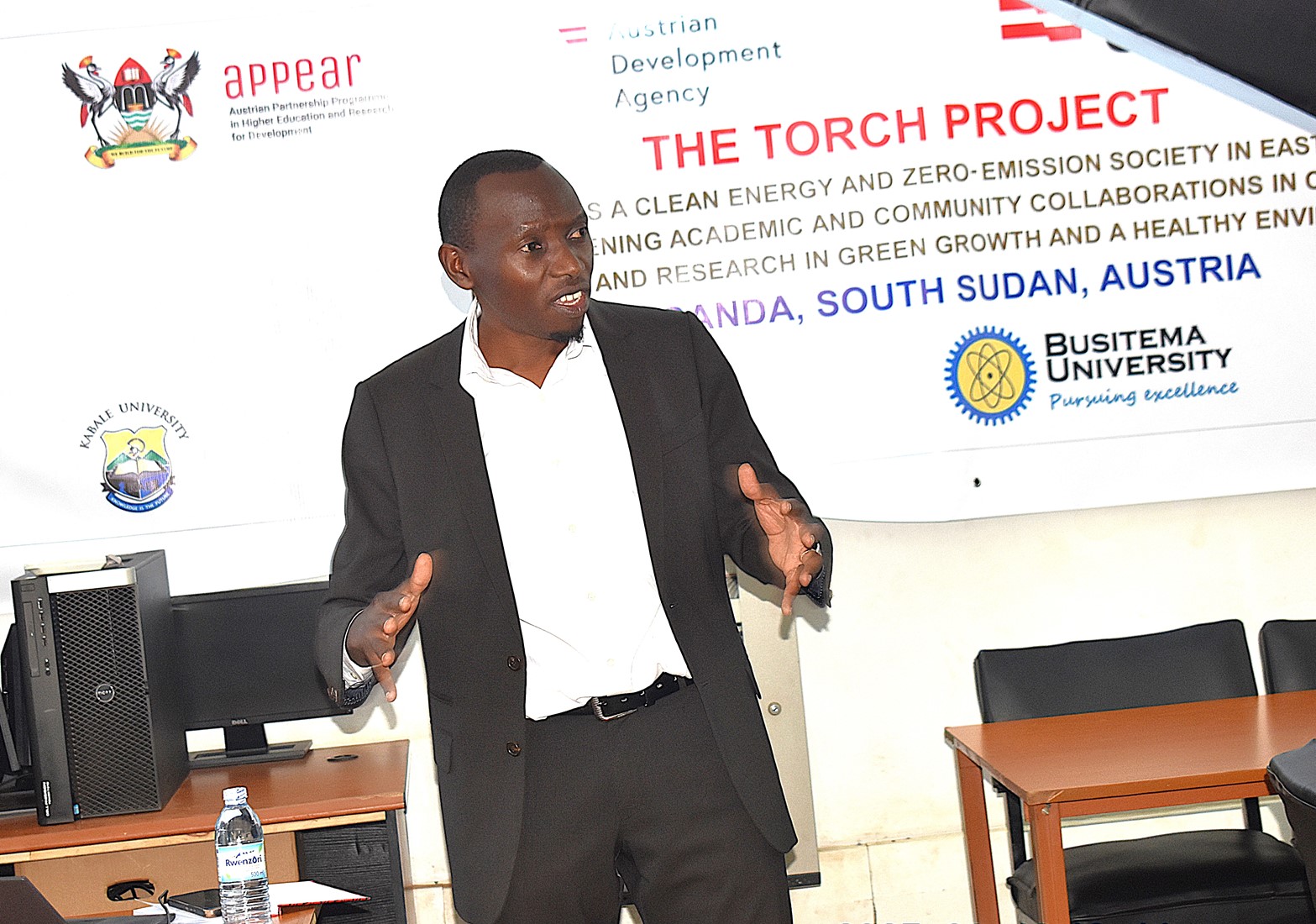
Introducing the TORCH Project: Towards a Clean Energy and Zero-Emission Society
The two-year project, code-named TORCH (Towards a Clean Energy and Zero-emission Society in East Africa), seeks to strengthen cooperation between academia and local communities to promote green growth and environmental sustainability. Funded by the OeAD-GmbH under the Austrian Partnership Programme in Higher Education Research for Development (APPEAR), TORCH focuses on clean energy solutions, carbon emission reduction, and community empowerment through training, research, and co-creation of green technologies.
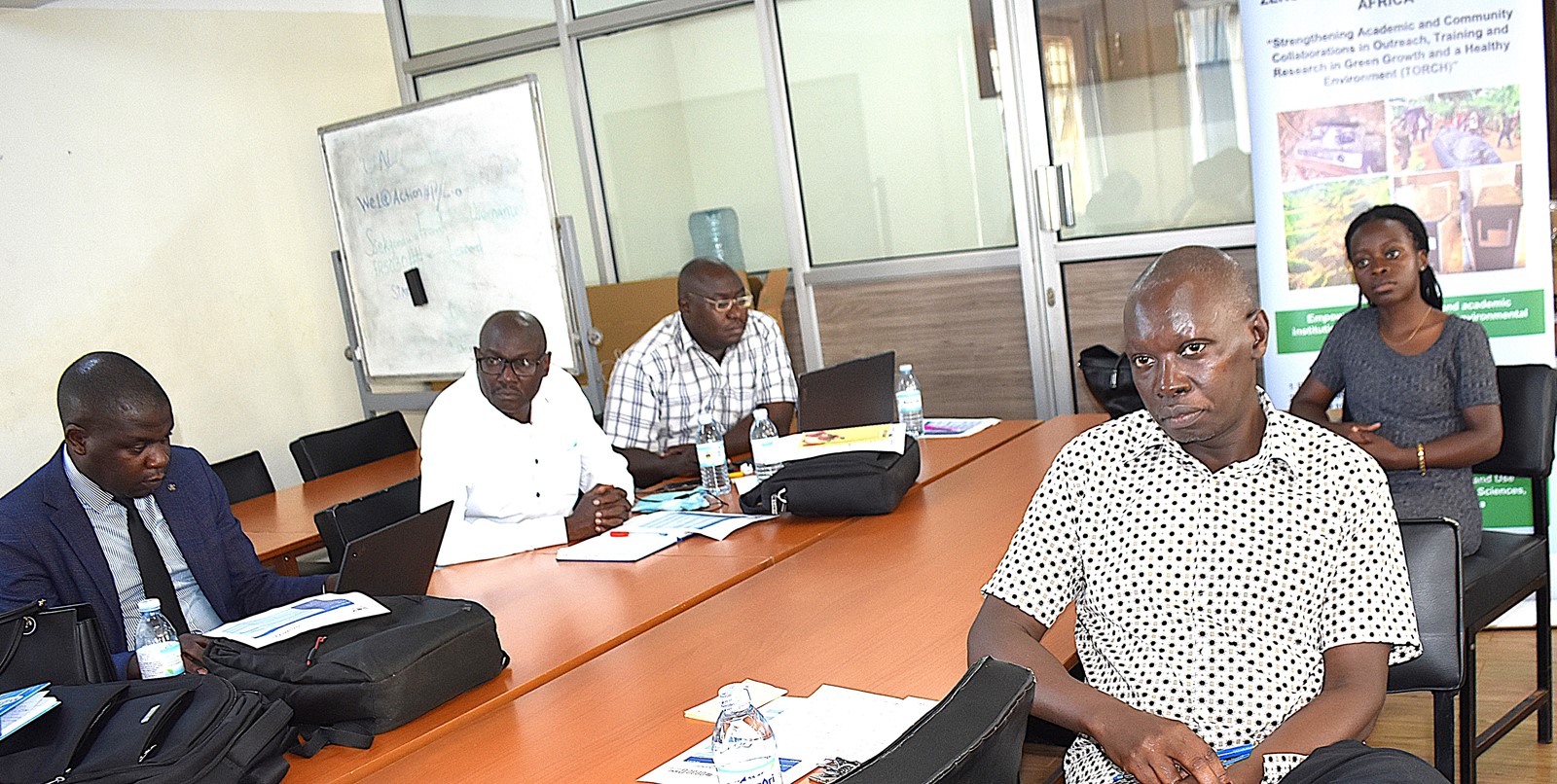
Officially launched by the Principal of CAES, represented by Dr. Paul Mukwaya, Head of the Department of Geography, Geo-Informatics and Climatic Sciences at Makerere University, TORCH builds upon existing East African government policies. The project will implement the innovative concept of living labs, where universities, communities, and stakeholders co-design, co-create, and co-produce affordable, reliable green technologies tailored to local needs.
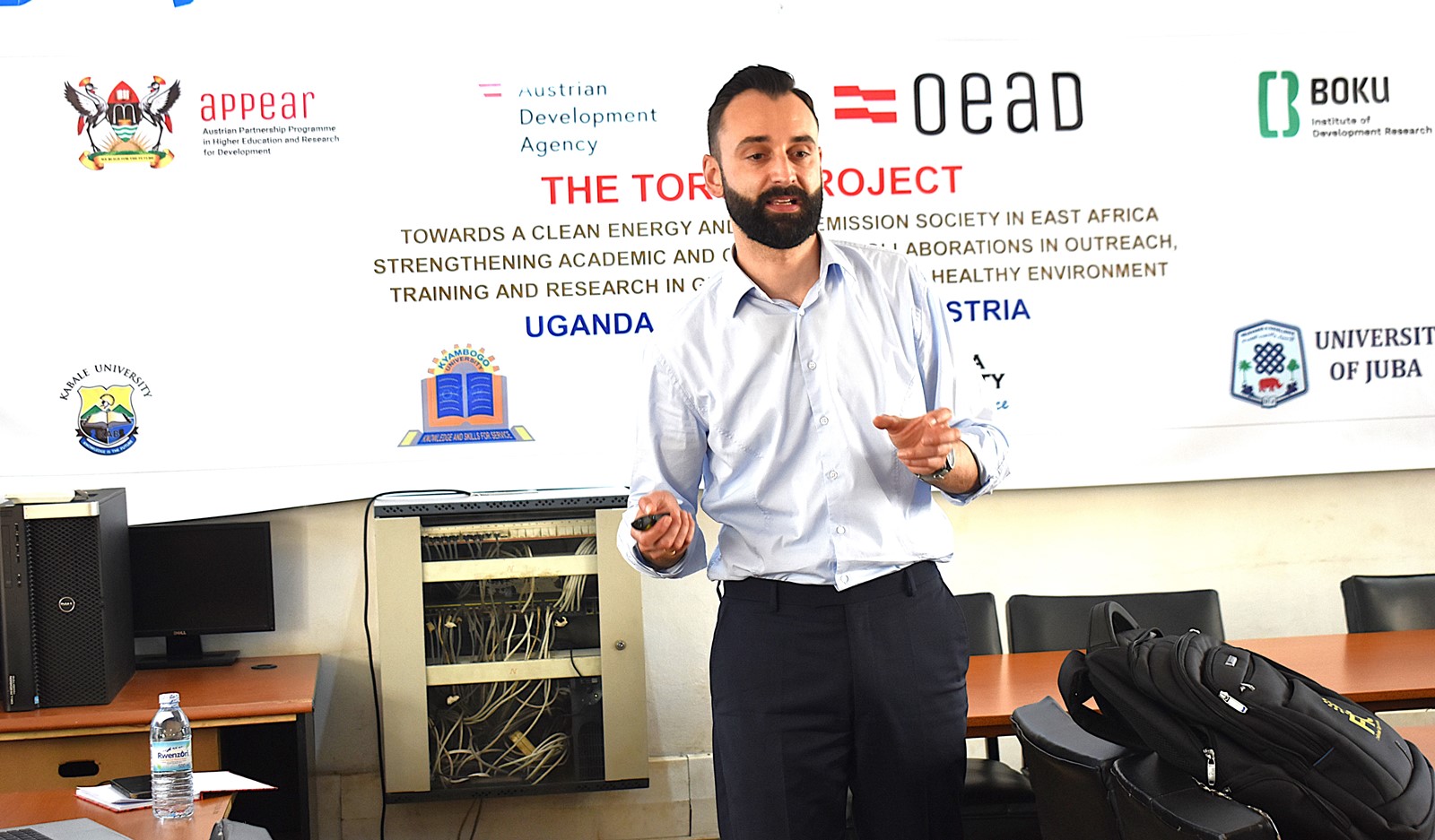
Key Objectives and Activities
TORCH aims to:
- Enhance teaching on green growth by integrating principles into selected academic curricula.
- Establish three living laboratories in Central, South Western, and Eastern Uganda to boost co-creation on energy efficiency and low-carbon emissions.
- Increase human capacity through short courses, field research, and training.
- Empower women in science and technology.
- Promote novel green technologies and support policy transformation.
- Strengthen partnerships among universities in East Africa.
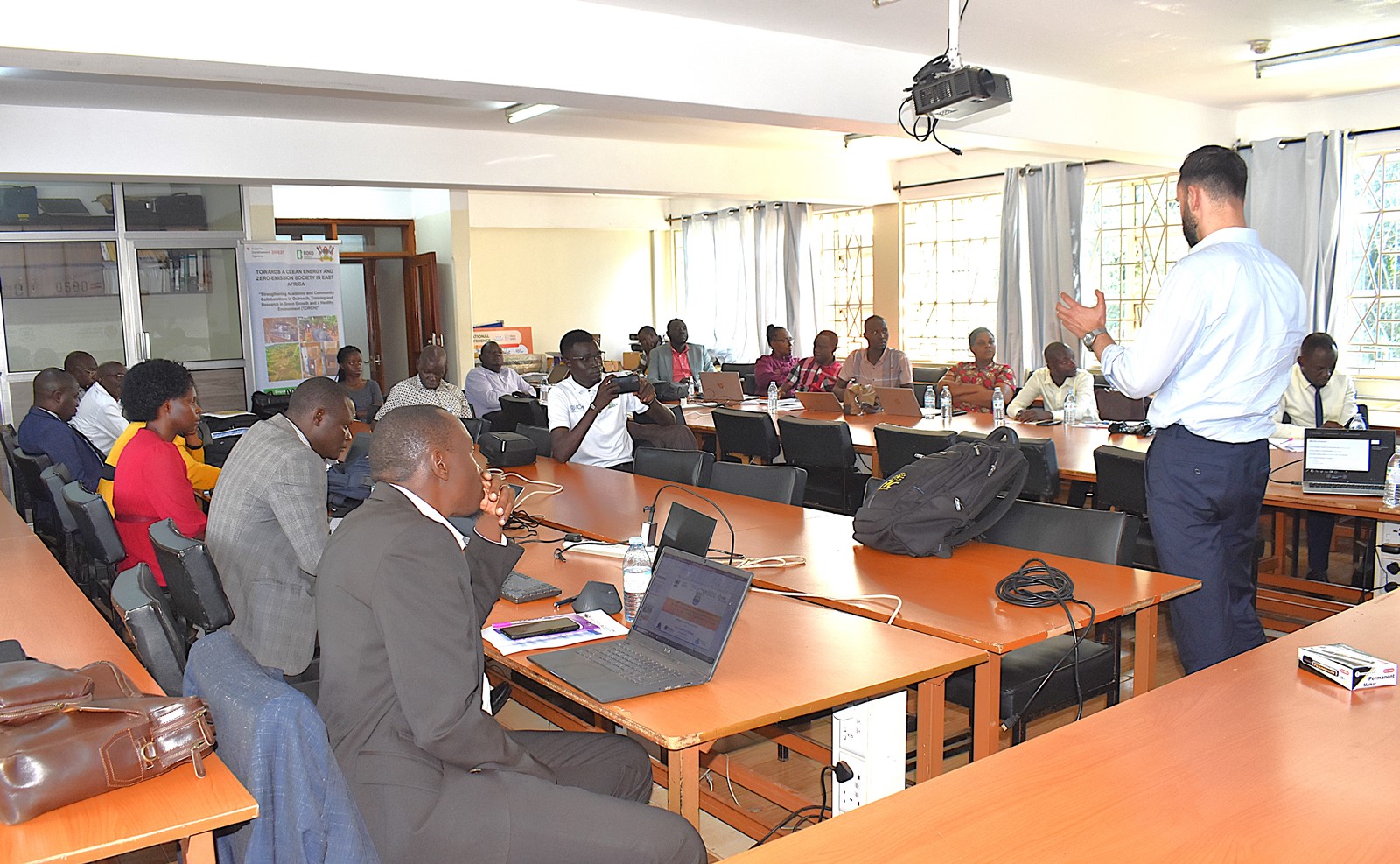
These activities directly contribute to achieving several Sustainable Development Goals (SDGs), including SDGs 4 (Quality Education), 5 (Gender Equality), 6 (Clean Water and Sanitation), 7 (Affordable and Clean Energy), 12 (Responsible Consumption and Production), and 13 (Climate Action), while also reducing health risks and conserving the environment.
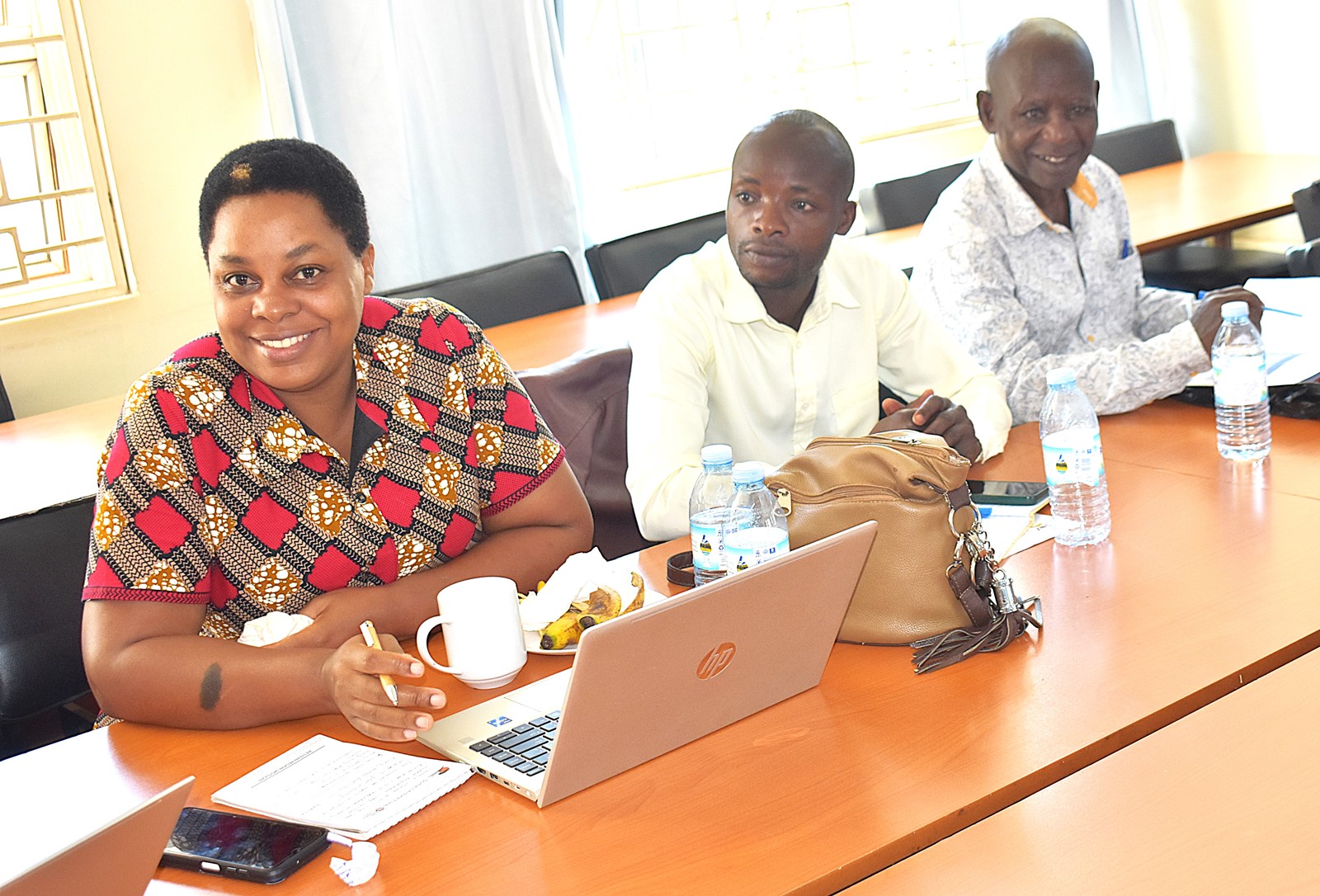
Leadership and Partner Institutions
The overall project coordinator is Dr. Patrick Musinguzi, Lecturer in the Department of Soil Science and Land Use Management at Makerere University. TORCH involves several partner institutions, including: Makerere University (Uganda), University of Natural Resources and Life Sciences, Vienna (Austria), Kabale University (Uganda), Busitema University (Uganda), Kyambogo University (Uganda), and the University of Juba (South Sudan).

Highlights of the Launch Ceremony
During the launch ceremony held in the GIS Lab at Makerere University, and attended by representatives from the partner institutions, Dr. Musinguzi presented an overview of TORCH, outlining key strategies for implementation and expected outcomes. Central to the project’s strategy is the integration of green growth principles into Makerere University’s academic curriculum. This will be formally proposed to the University Management for adoption. Additionally, the project aims to strengthen the university’s research agenda in this critical area. This will involve supporting faculty and student-led research projects and generation of evidence-based insights on green growth to influence policy at both local and national levels. There are also plans to establish three living labs in Central, South Western, and Eastern Uganda to serve as practical hubs for advancing green growth.
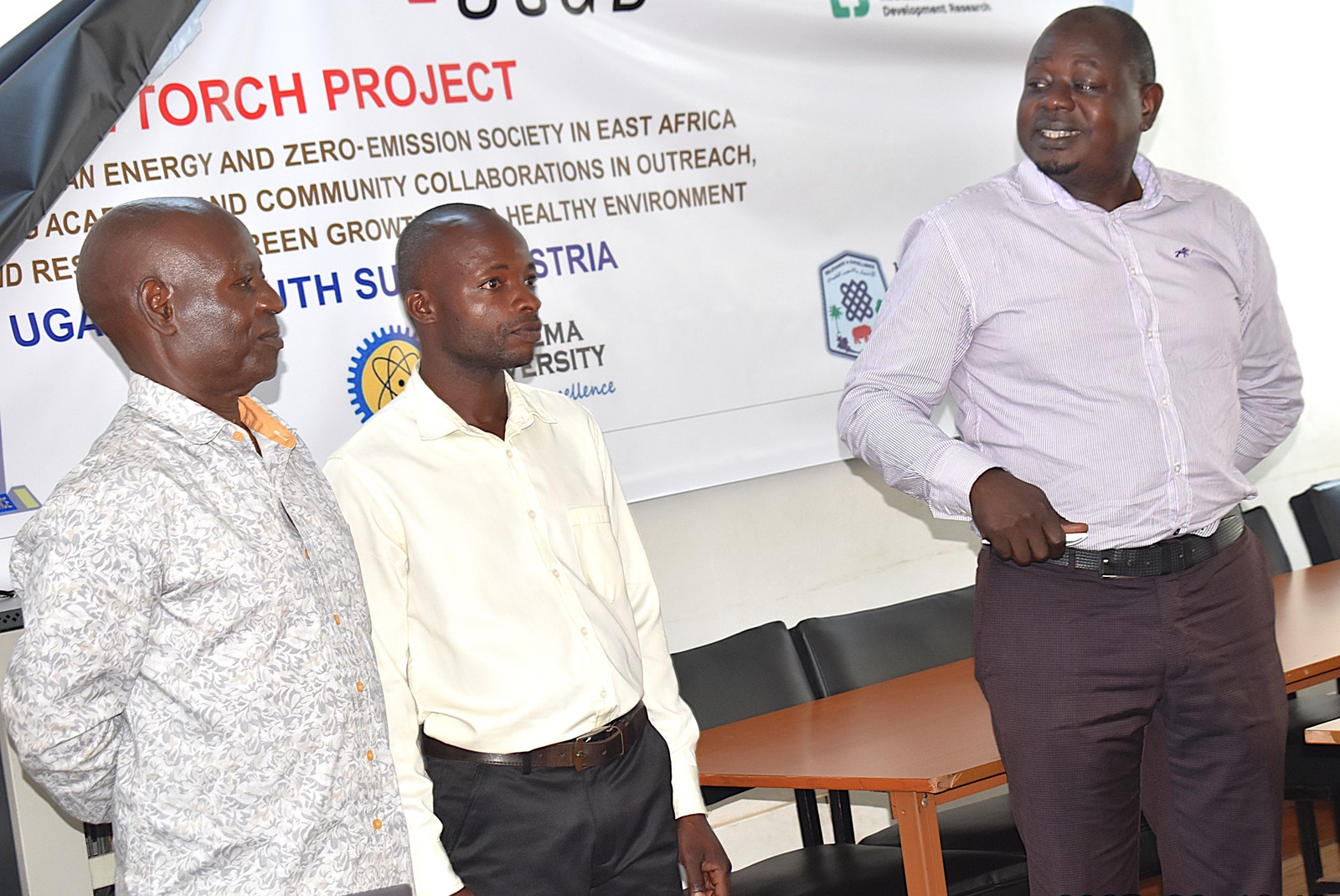
Expert Insights on Community Engagement
In his presentation, Mr. Andreas Bauer from the University of Natural Resources and Life Sciences, Vienna provided valuable insights into the critical role that living labs play in promoting sustainable, green growth. Highlighting practical examples and innovative approaches, Mr. Andreas Bauer emphasized how living labs serve as dynamic platforms for collaboration between researchers, industry stakeholders, and local communities, enabling real-world experimentation and the development of eco-friendly solutions that drive environmental and economic progress.
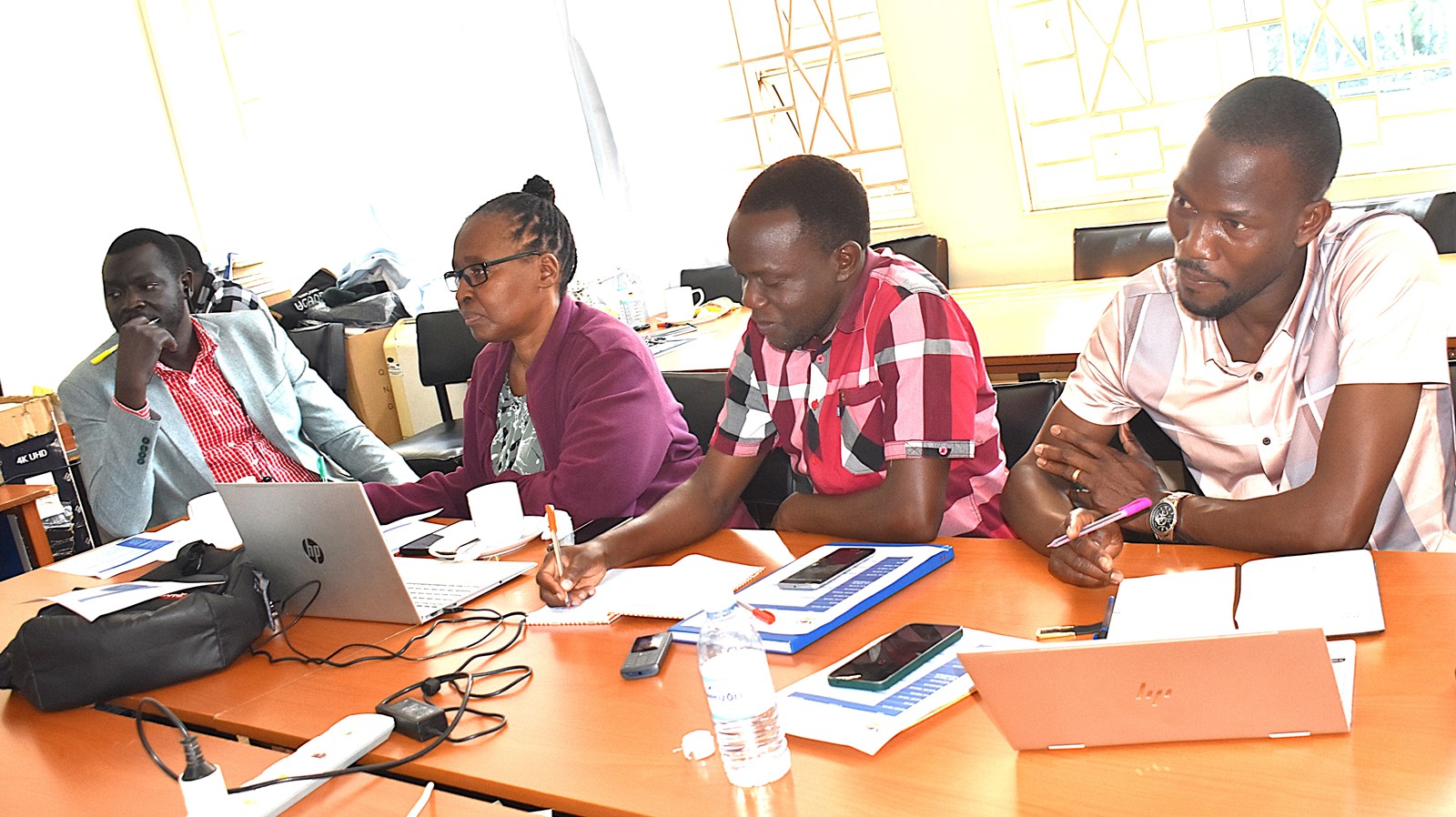
To emphasize the importance of collaboration between local communities and the academia, Mr. Kayanja Susane, a farmer from Kawumu Village in Luweero District, explained that, with guidance and support from the project team, he learned to produce biogas from animal waste -a reliable source of energy that reduces dependence on traditional fuels, subsequently minimizing environmental degradation.
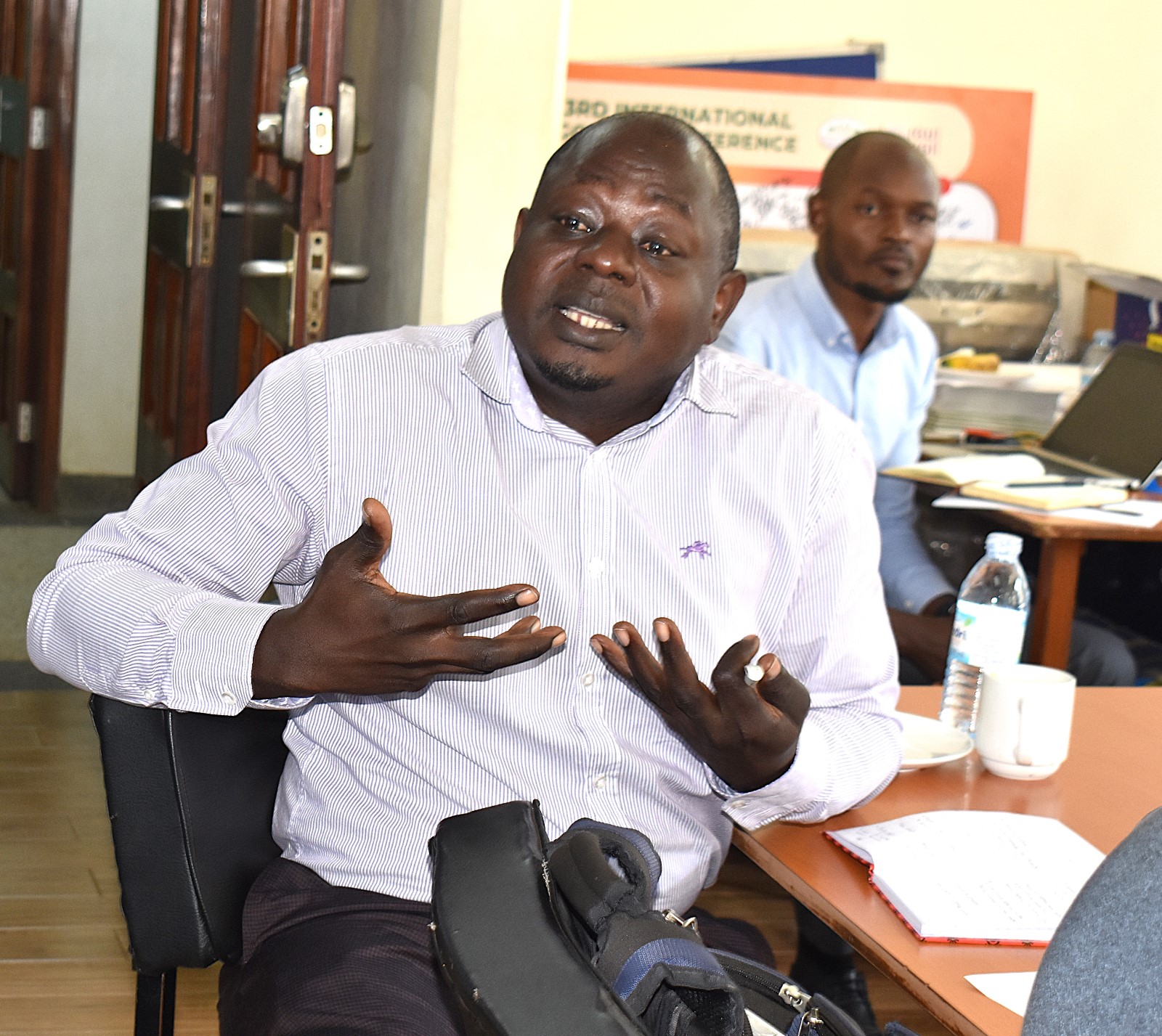
Research Focus
As part of the strategy to guide implementation, the project team brainstormed potential ecological and social indicators of low emissions in homesteads, and proposed several research areas to support green growth. Proposed research areas include:
- Life cycle analysis
- Circular economy practices within homesteads
- Gender integration and the intersection of gender with green growth
- The role of livestock in promoting green growth
- Evaluating the impact of interventions on total emissions
- Barriers to adopting green innovations
- The use of indigenous knowledge in promoting green growth
Addressing the participants, the Principal of the College of Agricultural and Environmental Sciences (CAES), represented by Dr. Paul Mukwaya, Head of the Department of Geography, Geo-Informatics, and Climatic Sciences at Makerere University, commended the project as a timely initiative aligned with the University’s research agenda. He underscored the importance of collaborating with other stakeholders, noting that similar projects have been conducted within and outside Makerere. Dr. Mukwaya called for the adoption of the theory of change framework to ensure the project delivers measurable, sustainable impacts that extend beyond policy briefs and gender mainstreaming, ultimately contributing to lasting green transformation in the region. He expressed appreciation to the project funders for their unwavering support to Makerere University.
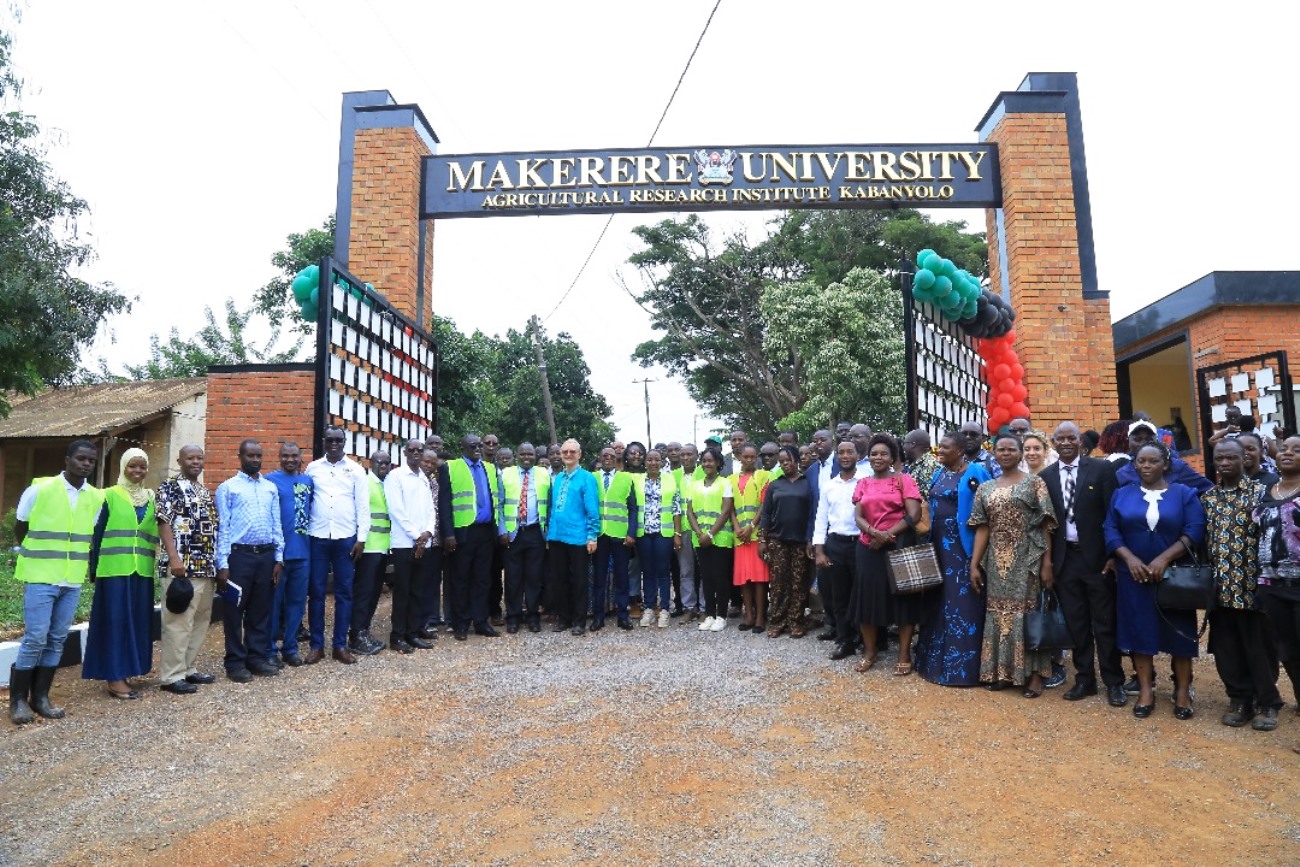
Refurbished gate to boost the institute’s aesthetics, security, accessibility, and sustainability
Makerere University College of Agricultural and Environmental Sciences (CAES) has completed the refurbishment of the main gate at the Makerere University Agricultural Research Institute Kabanyolo (MUARIK). The renovation was carried out by students from both CAES and the College of Engineering, Design, Art, and Technology (CEDAT), under the supervision of their academic mentors.
According to the Principal of CAES, Prof. Gorettie Nabanoga, the revamped gate now truly reflects the spirit of Makerere University and will significantly enhance the institute’s visual appeal, security, accessibility, and sustainability. The refurbished gate was officially commissioned by the Vice Chancellor, represented by the First Deputy Vice Chancellor in charge of Academic Affairs, Prof. Buyinza Mukadasi. The ceremony was attended by the Deputy Vice Chancellor in charge of Finance and Administration, Prof. Winston Tumps Ireeta, alongside CAES staff, students, and partners.
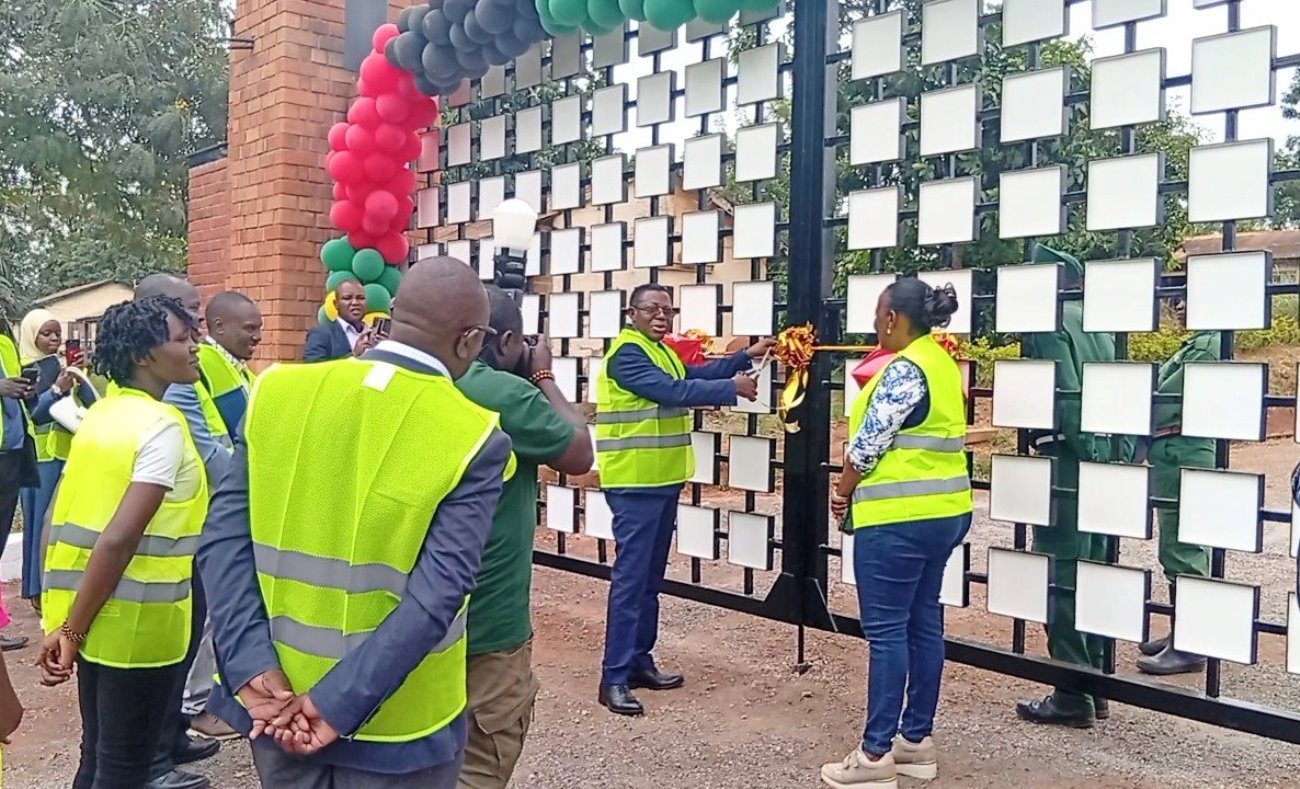
About MUARIK
Established in 1953, MUARIK serves as a hub for numerous research projects and facilities within CAES. It houses centres such as the Makerere University Regional Centre for Crop Improvement (MaRCCI), the Makerere University Centre for Soybean Improvement and Development (MakCSID), the Continuing Agricultural Education Centre (CAEC), the Centre of Excellence in Waste Management, and the Consortium for Enhancing University Responsiveness to Agribusiness Development (CURAD).
Additionally, MUARIK hosts KOICA-funded projects, including a modern layers production unit and a climate-controlled greenhouse for vegetable production. These units operate independently but collectively contribute to MUARIK’s dynamic research environment.
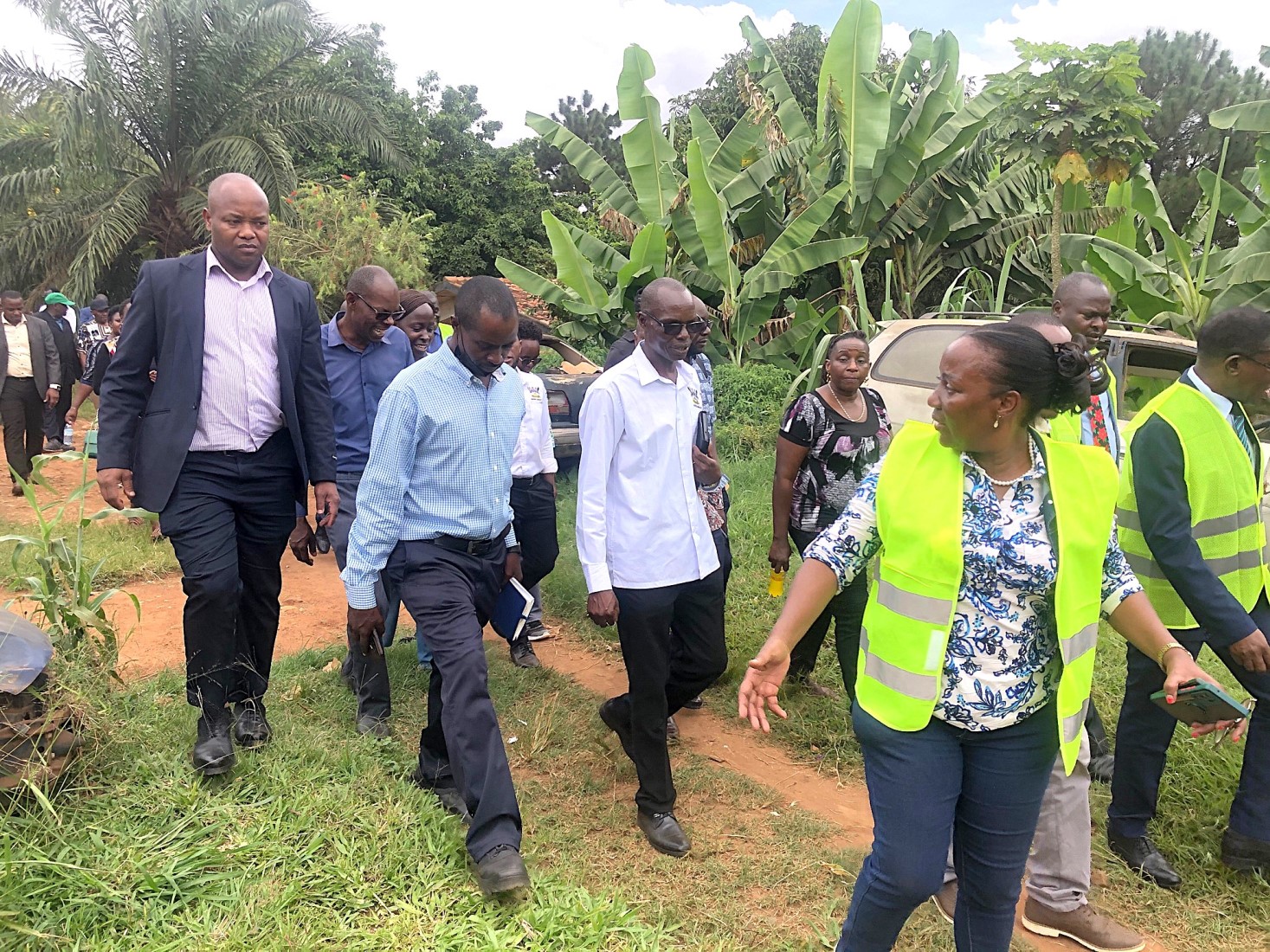
MUARIK also houses research units for the School of Agricultural Sciences (SAS) such as the Biotechnology and Tissue Culture Laboratories, experimental fields, Horticulture and Livestock Units, and the black soldier fly project. It accommodates training and research facilities for the Schools of Food Technology, Nutrition, Bioengineering, and the School of Forestry, Environmental, and Geographical Sciences. It also hosts hostels for both local and international students who stay at the Institute to gain practical experience in production and research under typical farming conditions.
Enterprises and Research at MUARIK
Enterprises at MUARIK include approximately 100 acres of pastures, a dairy farm, feed mill, silage production, poultry unit, piggery unit, banana and coffee plantations, maize and soybean crops, horticulture, goat farming, and the recently revived rabbit unit featuring four breeds: New Zealand White, Chinchilla, California White, and Flemish Giant.
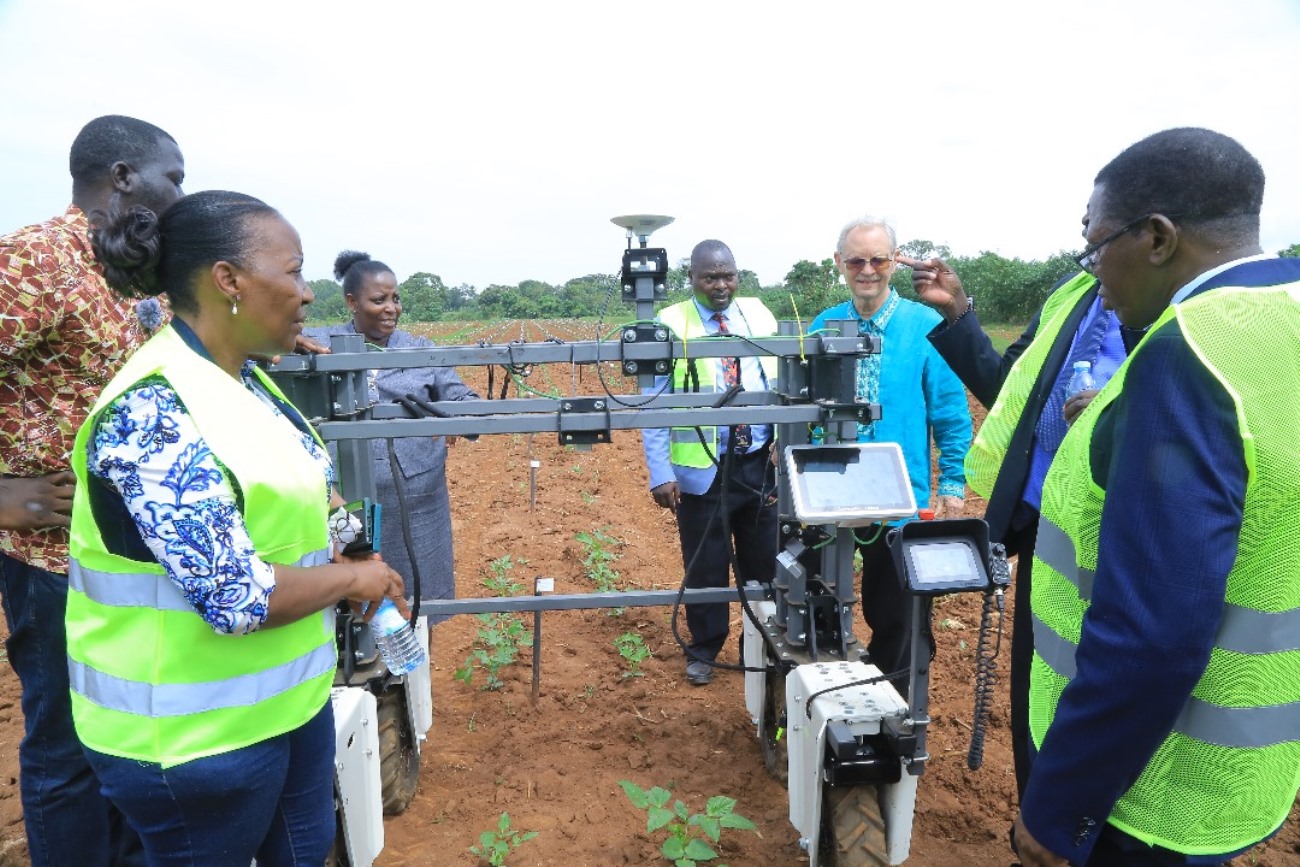
Current research initiatives focus on edible insects and worms as alternative livestock feeds, agroforestry, horticulture, and value addition in food processing. MUARIK maintains a strong partnership with the Uganda Flowers Exporters Association (UFEA), collaborating on the commercial testing of new flower species to diversify Uganda’s flower exports beyond traditional rose bouquets. Collaborative efforts also include identifying native natural enemies to control Chrysanthemum pests, working with UFEA, Wageningen University, breeders, and the National Agricultural Research Organization.
As part of Uganda’s National Agricultural Research System (NARS), MUARIK prioritizes research in biotechnology, tissue culture, plant breeding, improved farming methods, agro-processing, value addition, and marketing.
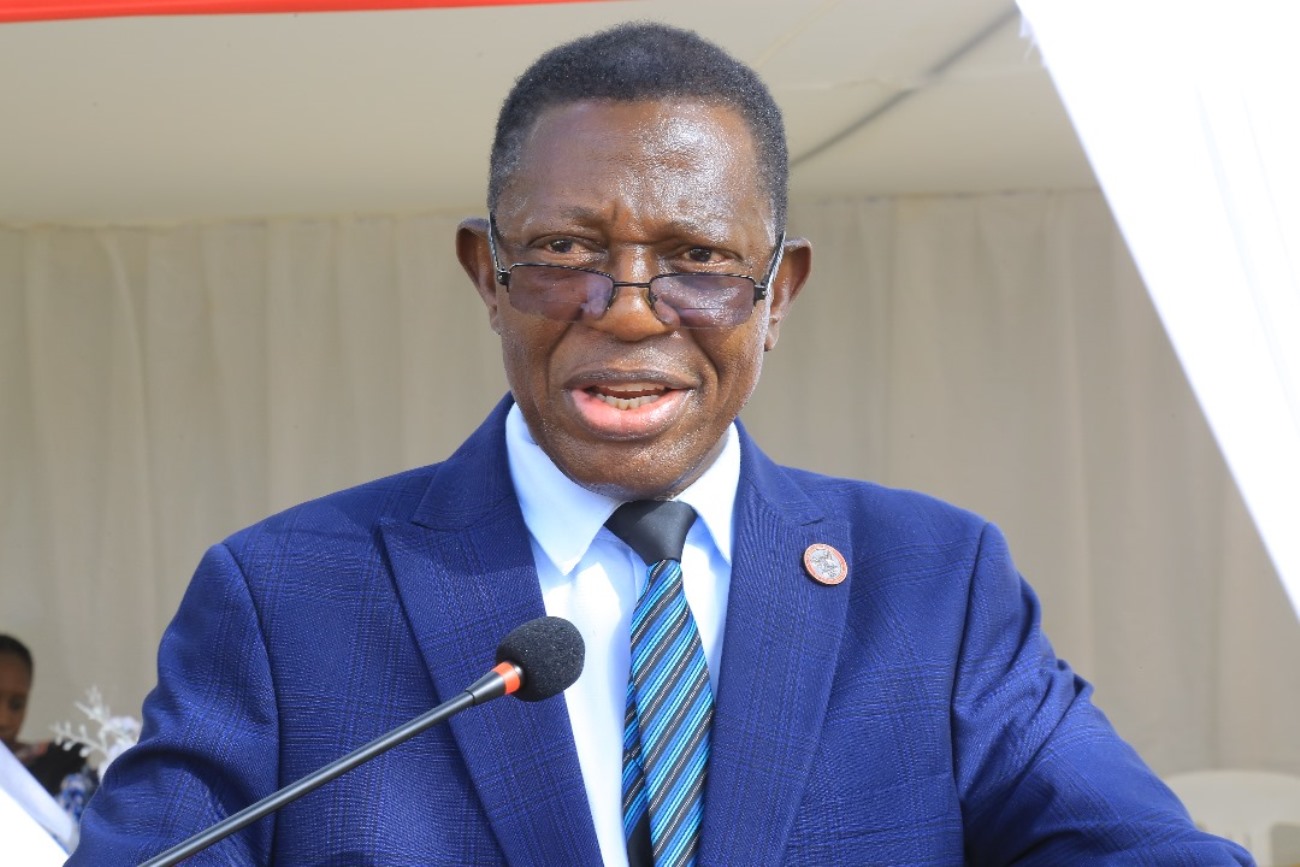
Tour to Assess the Capacity and Condition of Facilities at MUARIK
As part of the commissioning ceremony, the Principal of CAES, Prof. Gorettie Nabanoga, led visitors on a comprehensive tour of the Makerere University Agricultural Research Institute, Kabanyolo (MUARIK). The purpose of the tour was to provide first-hand insight into the institute’s current infrastructure, operational capacity, and ongoing challenges.
During the visit, Prof. Nabanoga highlighted both the strengths and limitations of the institute. While the tour showcased MUARIK’s potential as a hub for agricultural research and innovation, it also brought to light a number of critical issues affecting its functionality. Chief among these is the persistent challenge of land encroachment, which continues to threaten the integrity and sustainability of the institute’s operations.
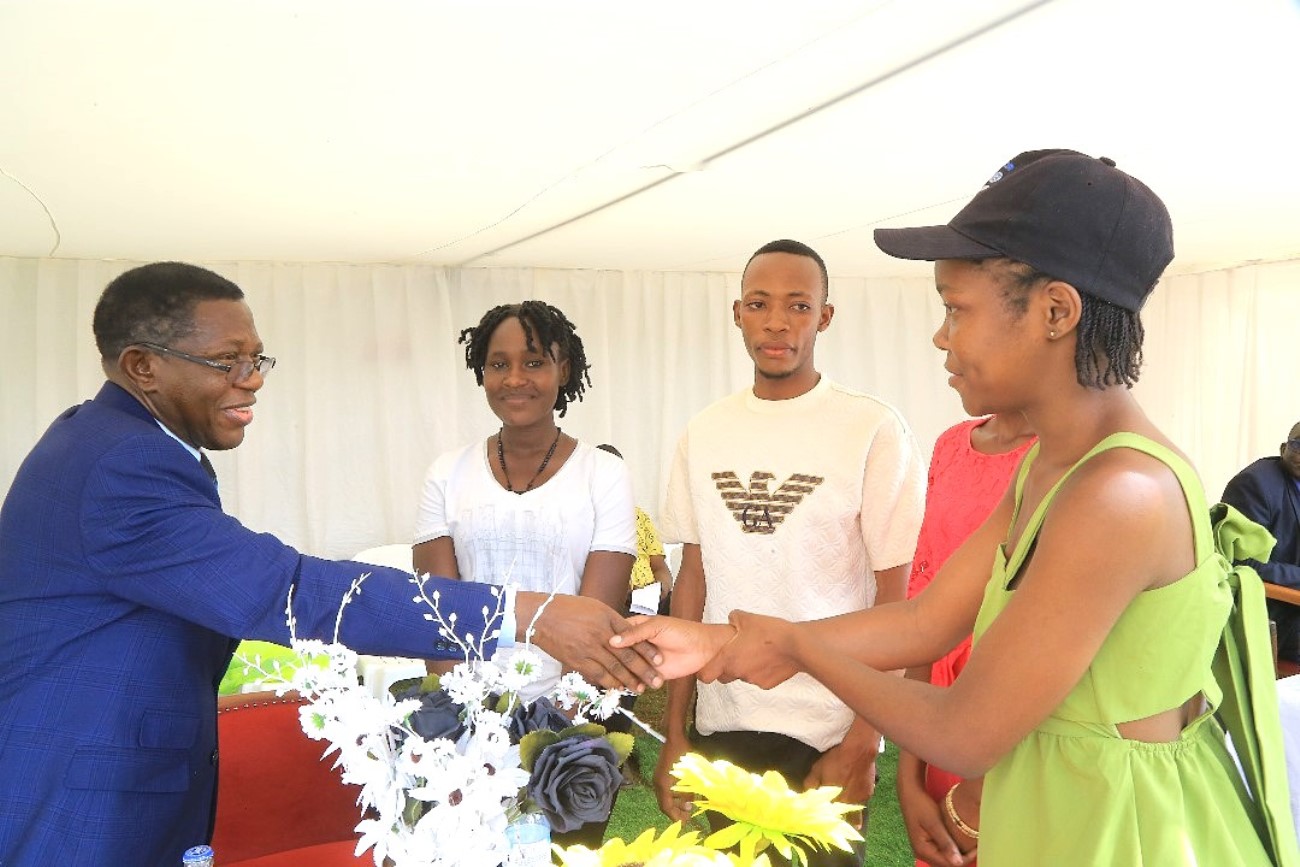
In her remarks, Prof. Nabanoga commended Dr. Cyrus Ongom, the outgoing Director of MUARIK, for his unwavering dedication to safeguarding the institution’s land. She acknowledged his resolute efforts in the face of persistent threats and numerous challenges, emphasizing the vital role he played in preserving MUARIK’s integrity. “This year, we aim to further reposition MUARIK as a leading centre for agricultural innovation and production in the region,”said Prof. Nabanoga. “Our focus will be on strengthening research, fostering partnerships with stakeholders, and enhancing the capacity of our infrastructure to support sustainable and impactful agricultural practices.”
The Principal expressed gratitude to all who have supported the transformation journey of CAES. “As we celebrate our achievements today, we take this moment to recognize and honour everyone who has been part of our transformation journey,” the Principal said. “We are especially grateful to the Vice Chancellor, Prof. Barnabas Nawangwe for his unwavering support, which has been instrumental in driving the College forward.”
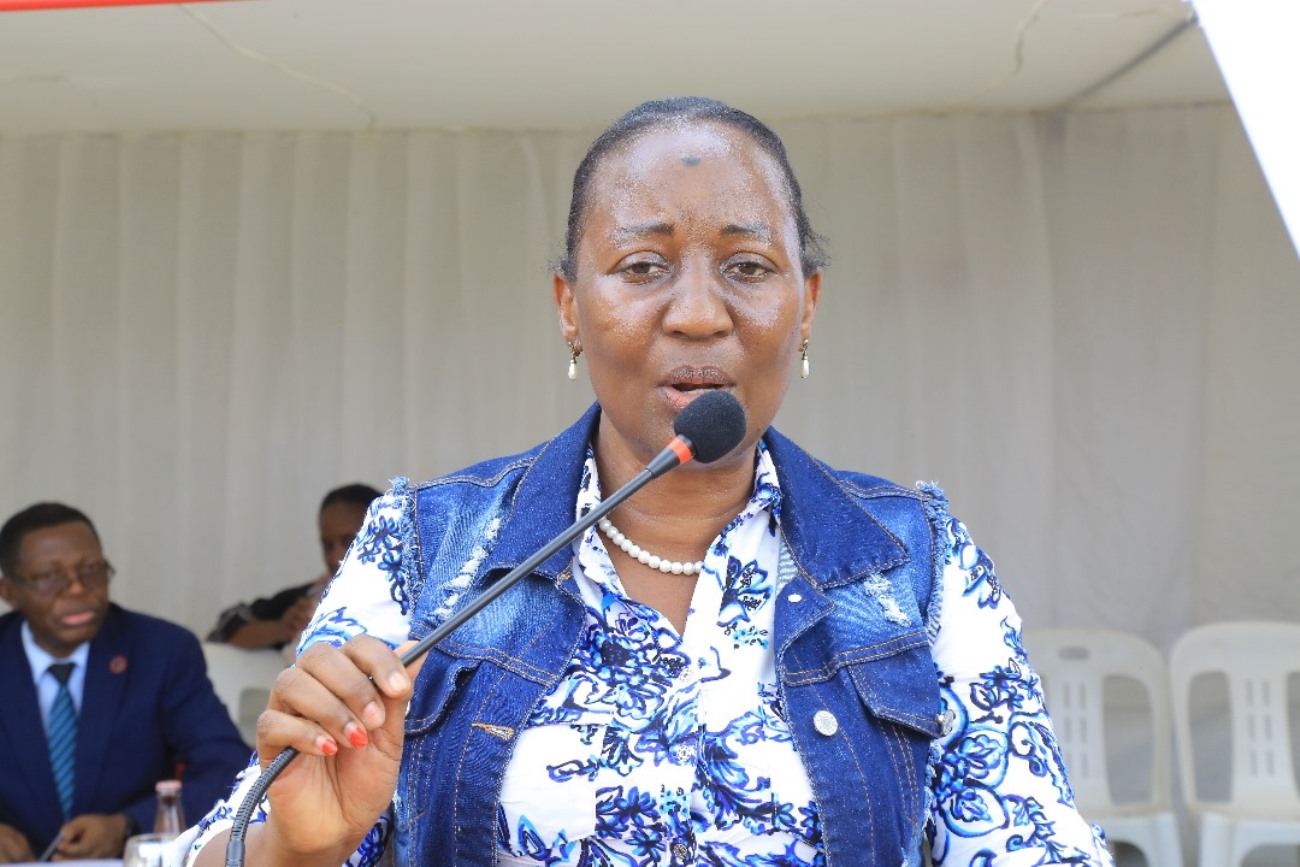
Delivering his remarks, the Deputy Vice Chancellor in charge of Academic Affairs (DVCAA), Prof. Buyinza Mukadasi, commended the CAES for its remarkable achievements in training and research.
“From my assessment, CAES has consistently excelled across its core mandates – training, research, production, and community outreach. The College has played a crucial role in advancing the agricultural sector through innovative research, high-quality academic programmes, and meaningful community engagement. These efforts have made a significant contribution to Uganda’s national development goals and the transformation of its agricultural landscape. Given its demonstrated success and strategic relevance, CAES is highly deserving of enhanced investment and funding to further expand its impact,” he stated.
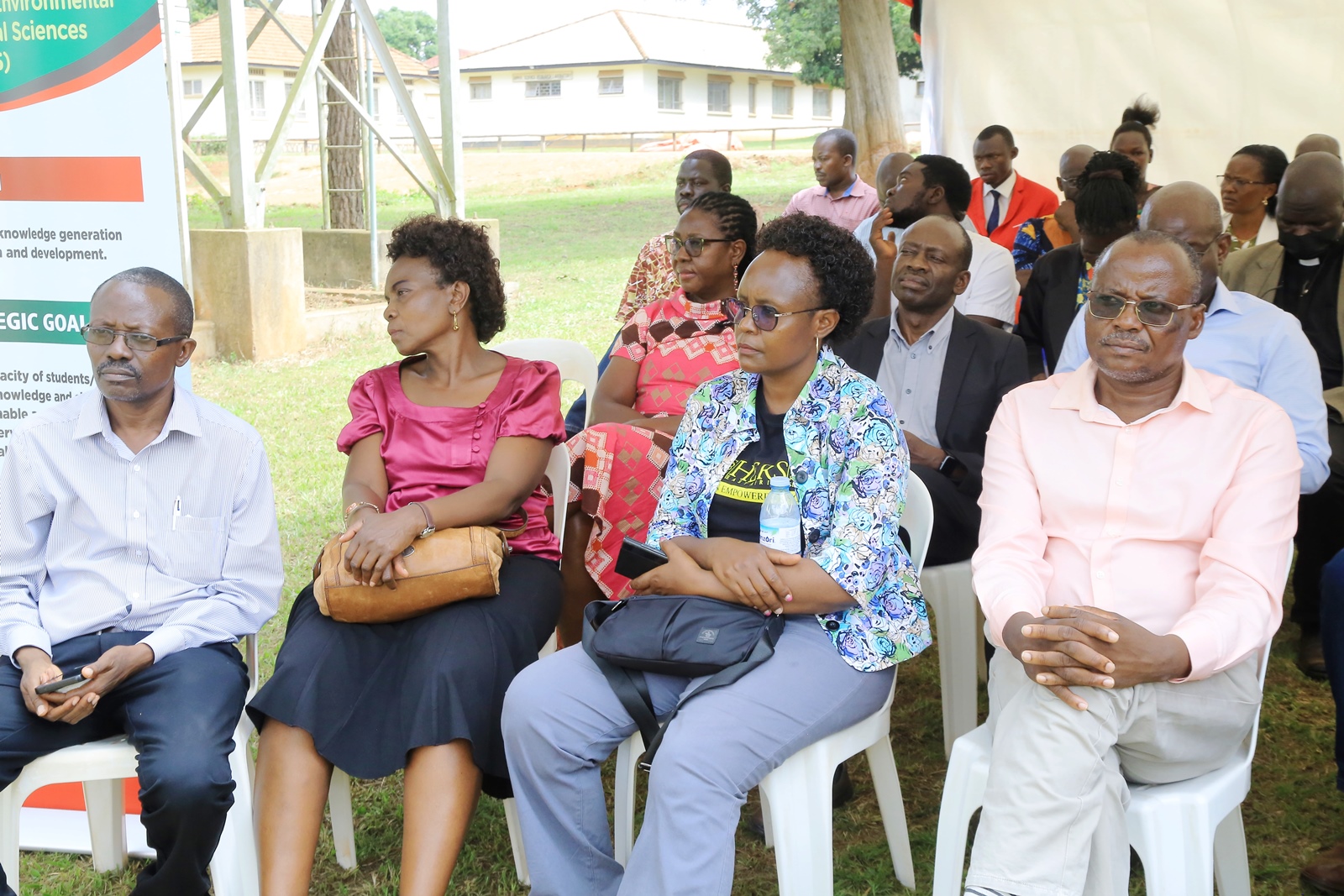
CAES Annual Awards and Staff Recognition Ceremony
The CAES Annual Awards and Staff Recognition Ceremony celebrated the outstanding achievements of dedicated teaching, administrative, and support staff. During this special event, several members of staff were acknowledged and honoured for their exceptional performance, commitment, and contributions to the College’s success.
Commenting on the significance of the awards, Prof. Buyinza praised the initiative, emphasizing that such recognition serves as a powerful motivator. He highlighted how acknowledging excellence not only boosts morale but also inspires continued dedication and fosters a culture of high performance.
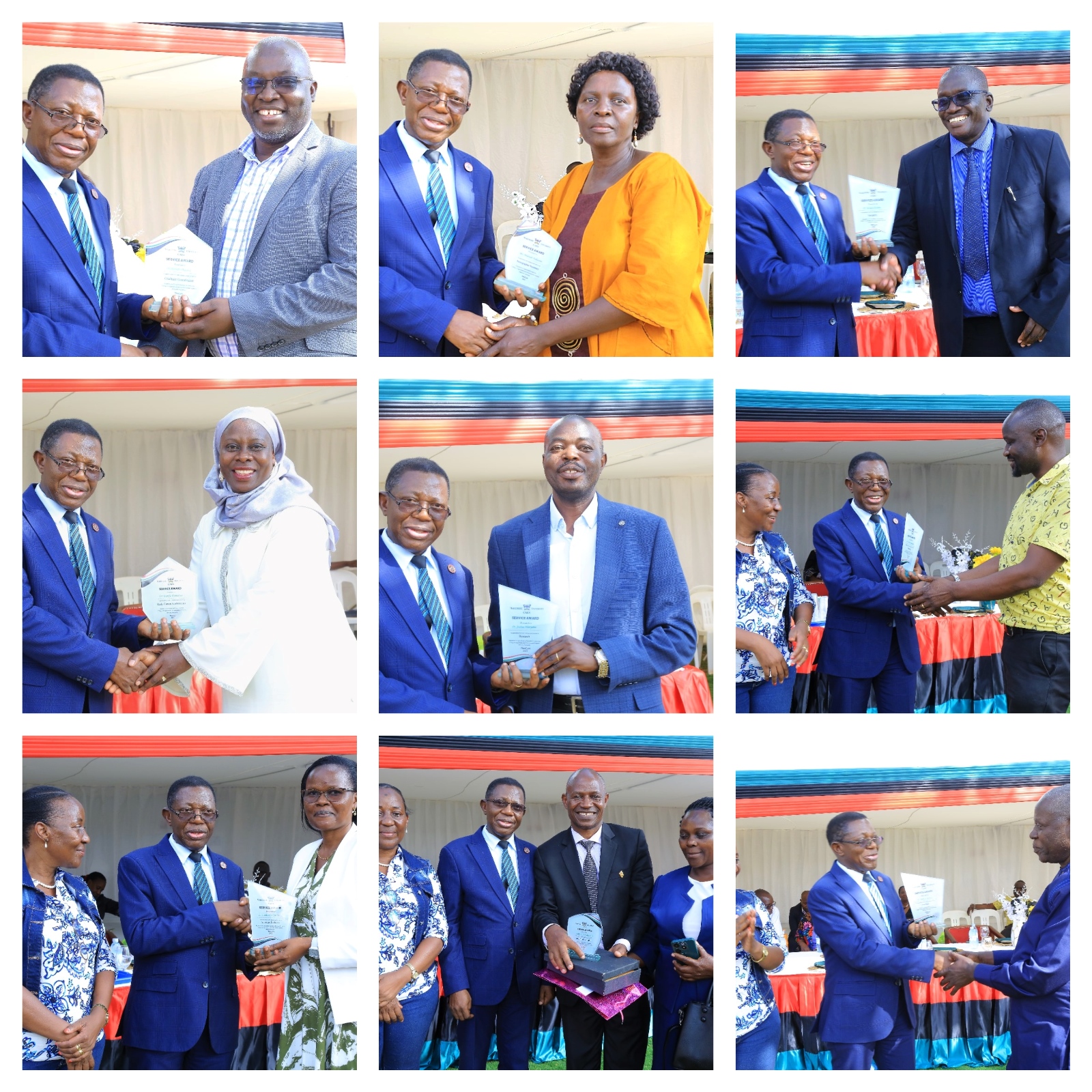
Click on the link below to access the list of staff recognized for exceptional performance.
More pictures from the event
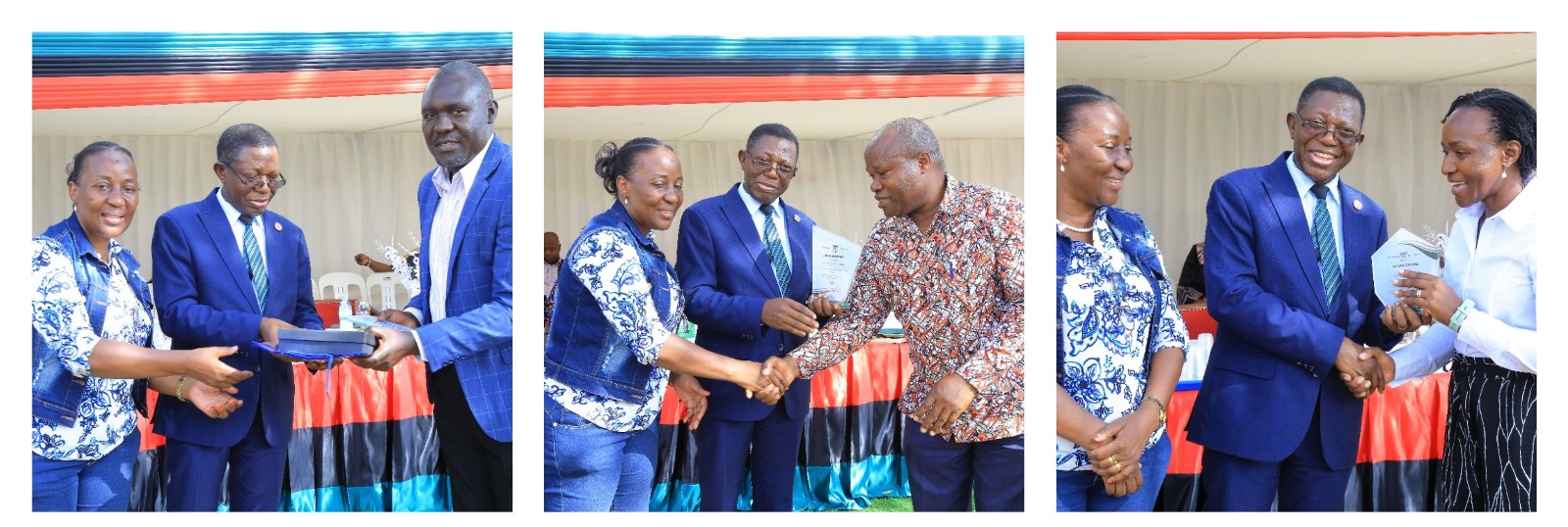
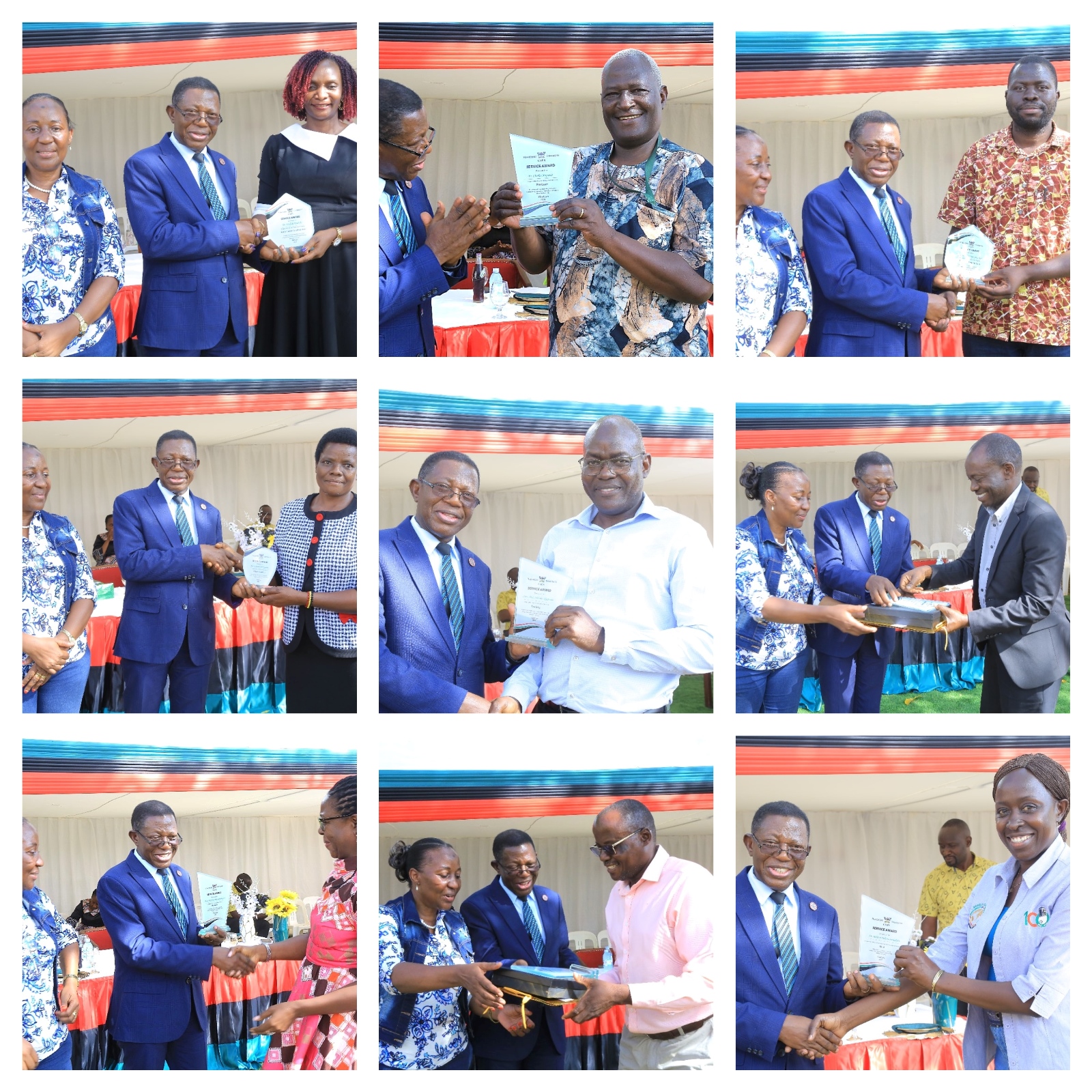
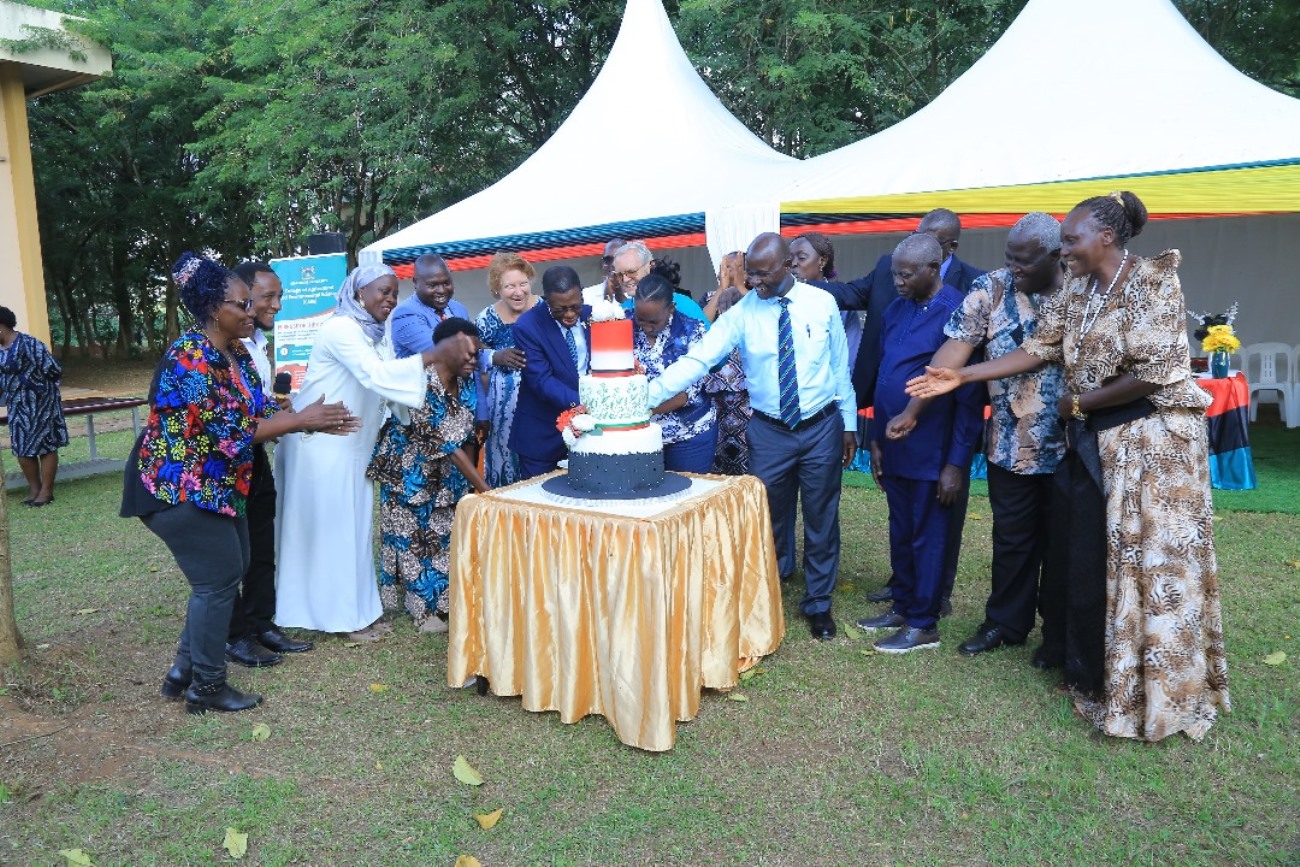
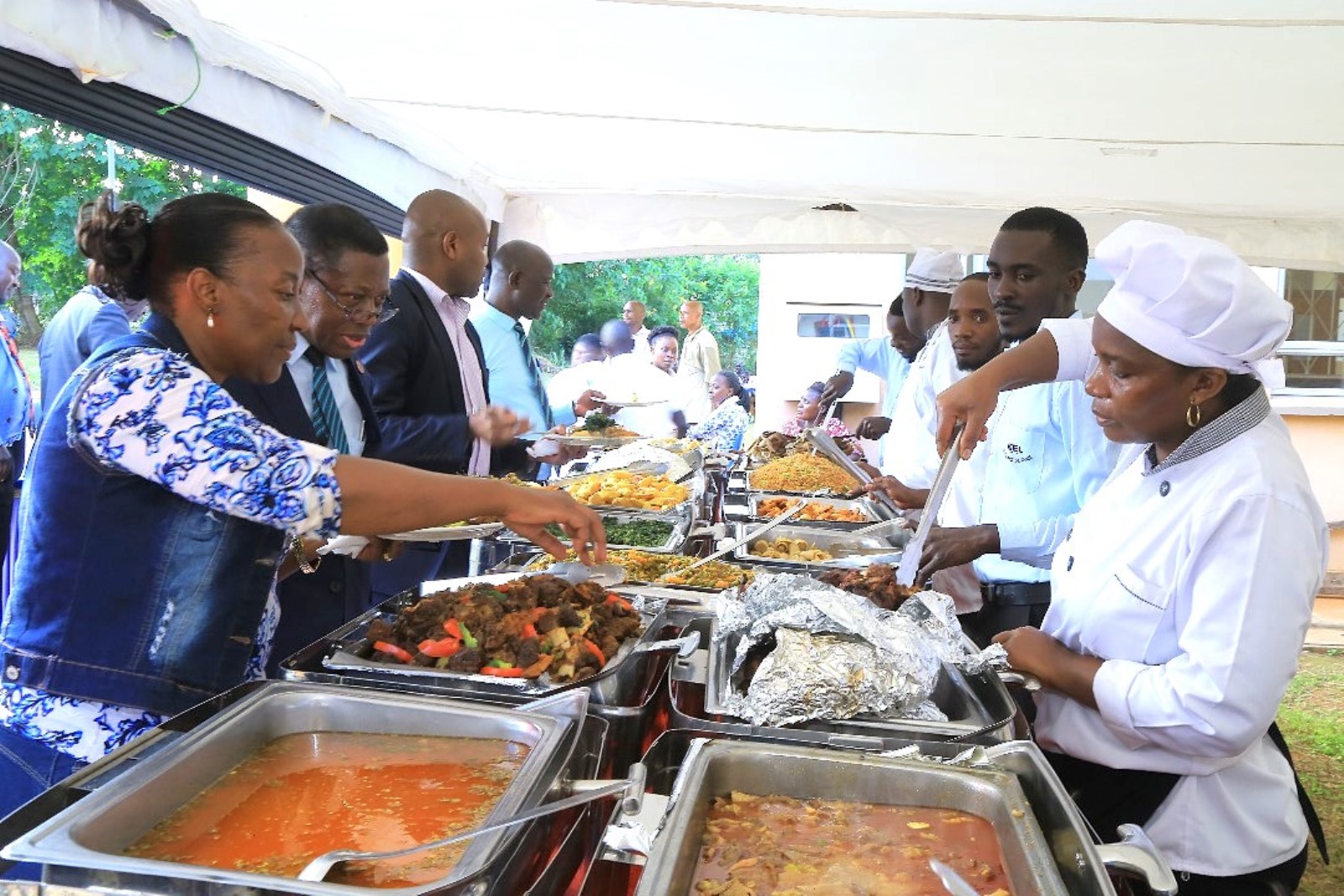
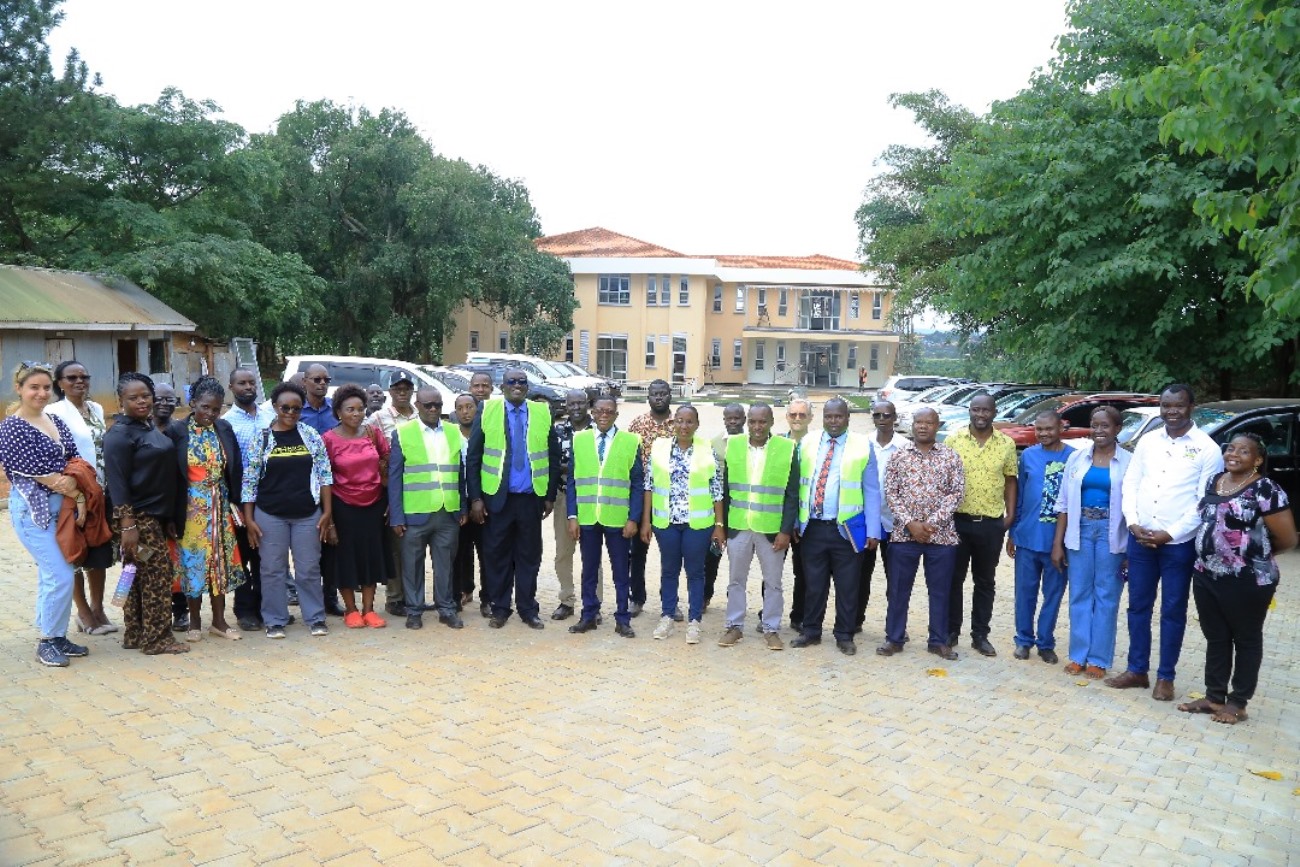
Trending
-

 General4 days ago
General4 days agoMature Age Scheme Exam Results for 2025/2026
-

 General1 week ago
General1 week agoFreshers’ Joining Instructions 2025/2026
-

 General1 week ago
General1 week agoMastercard Foundation Board pays its inaugural visit to Makerere University
-

 General1 week ago
General1 week agoUVCF Makes Case for HEAC Programme
-
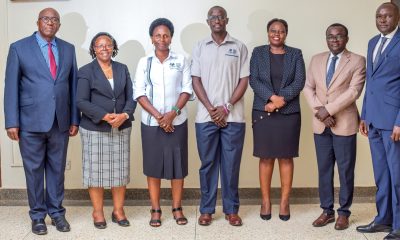
 General2 weeks ago
General2 weeks agoCall For Expression of Interest: MURBS MIS Requirements Gathering
